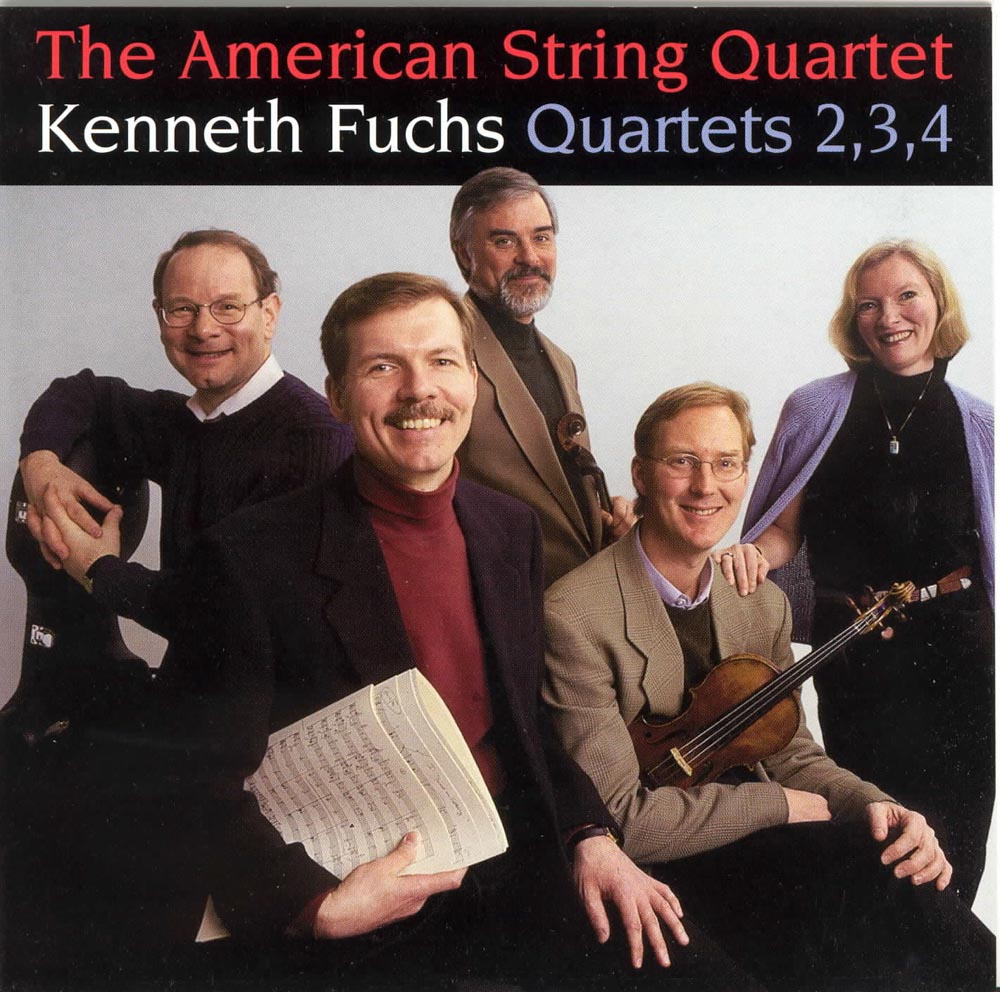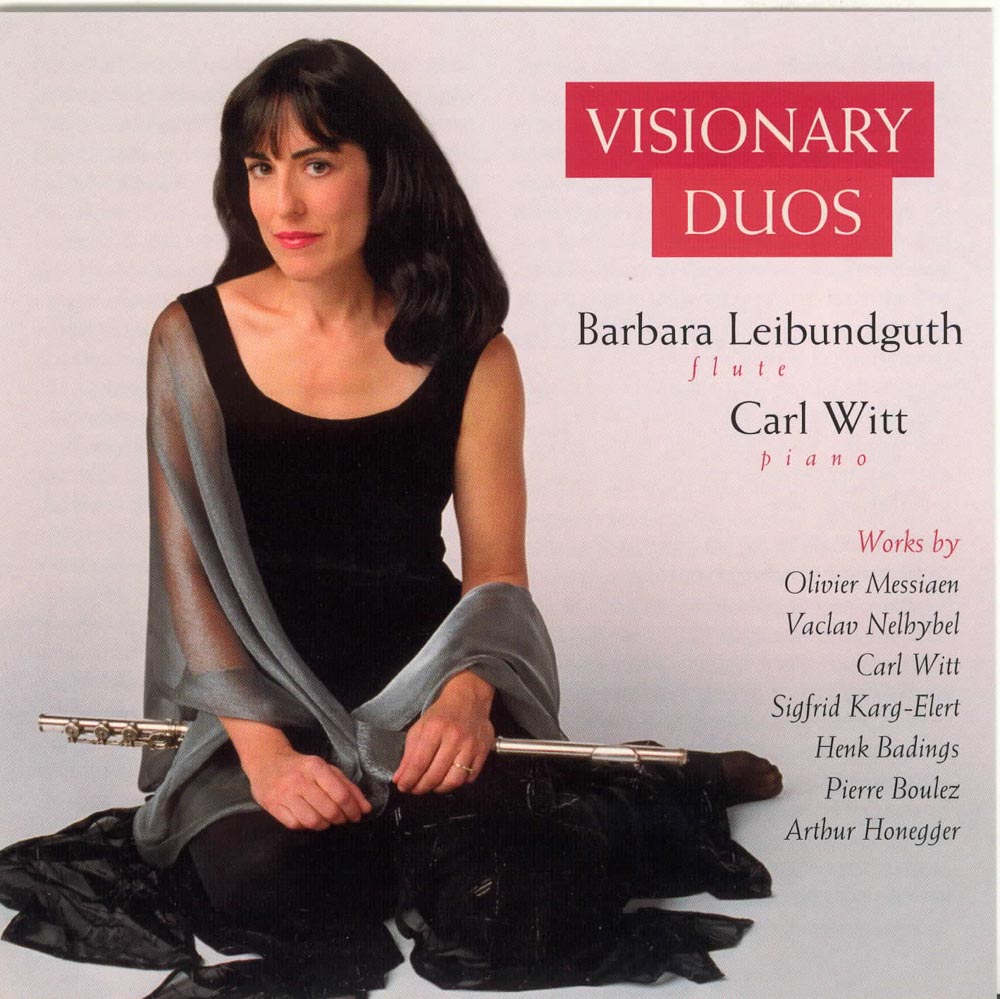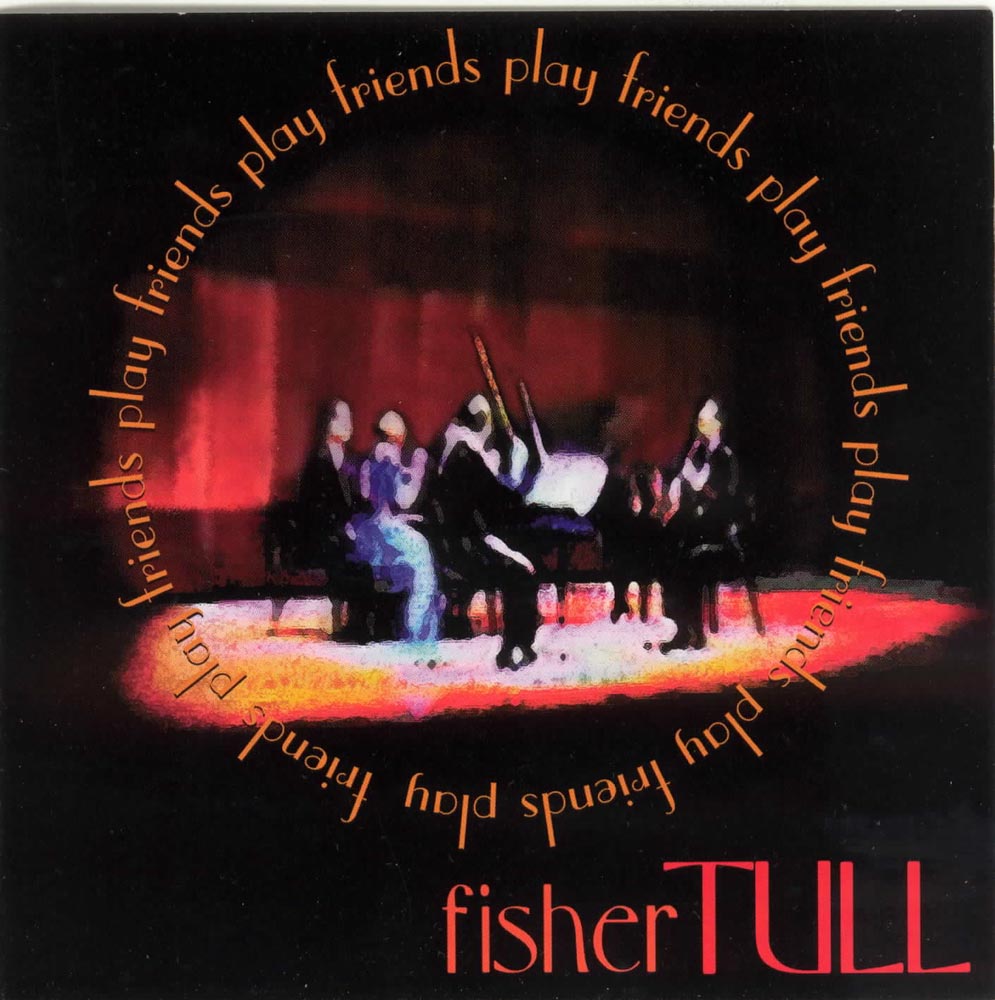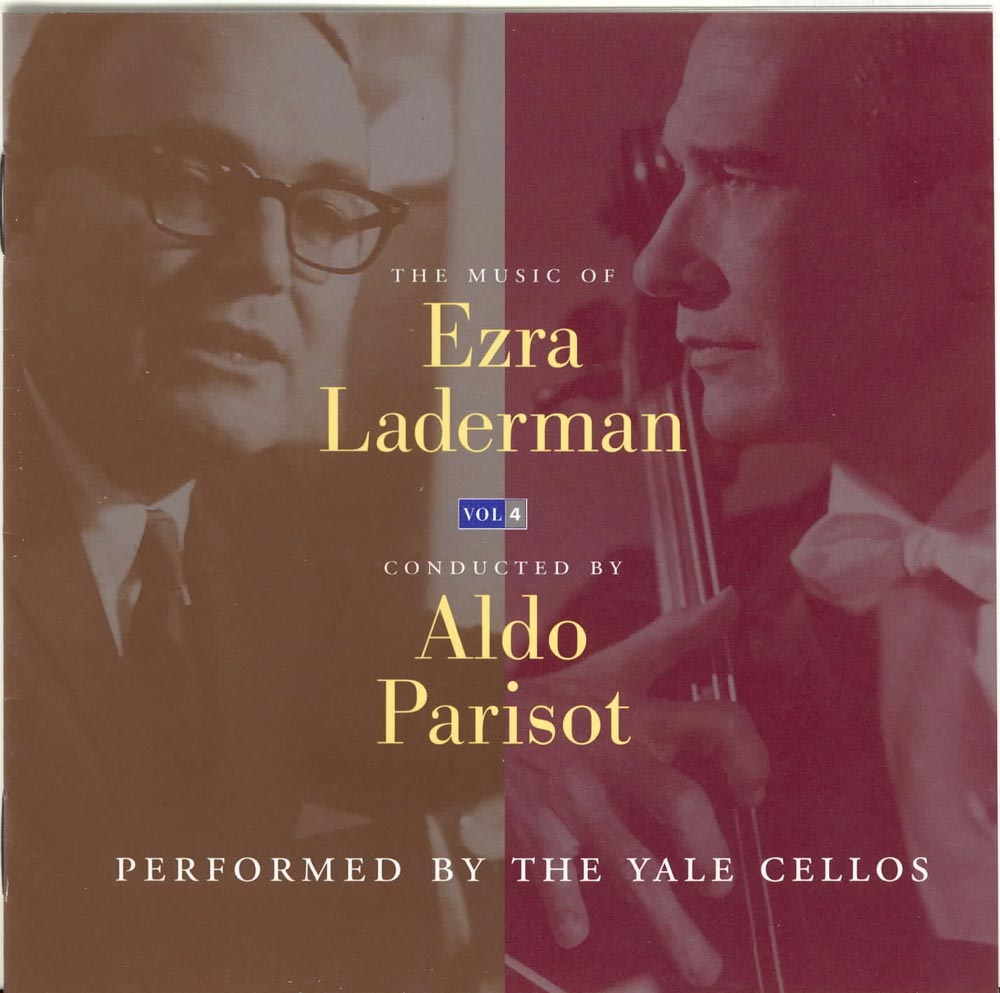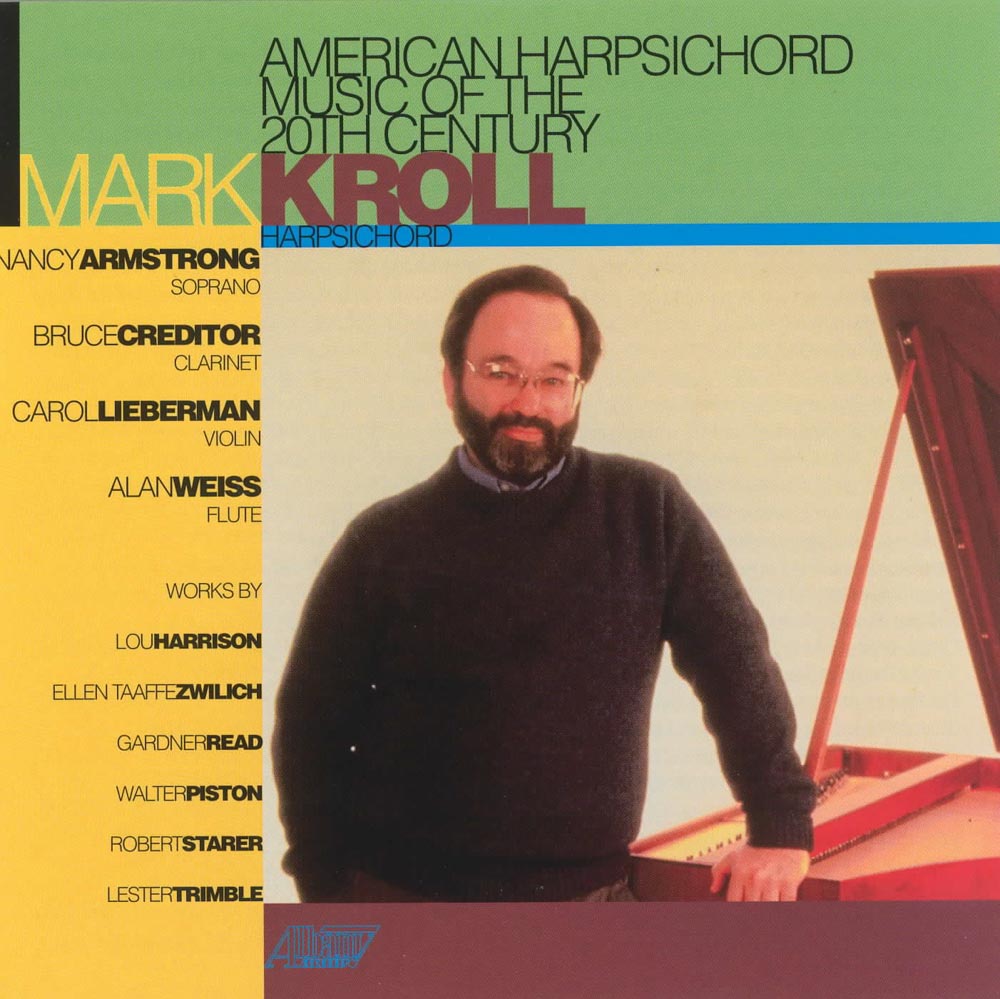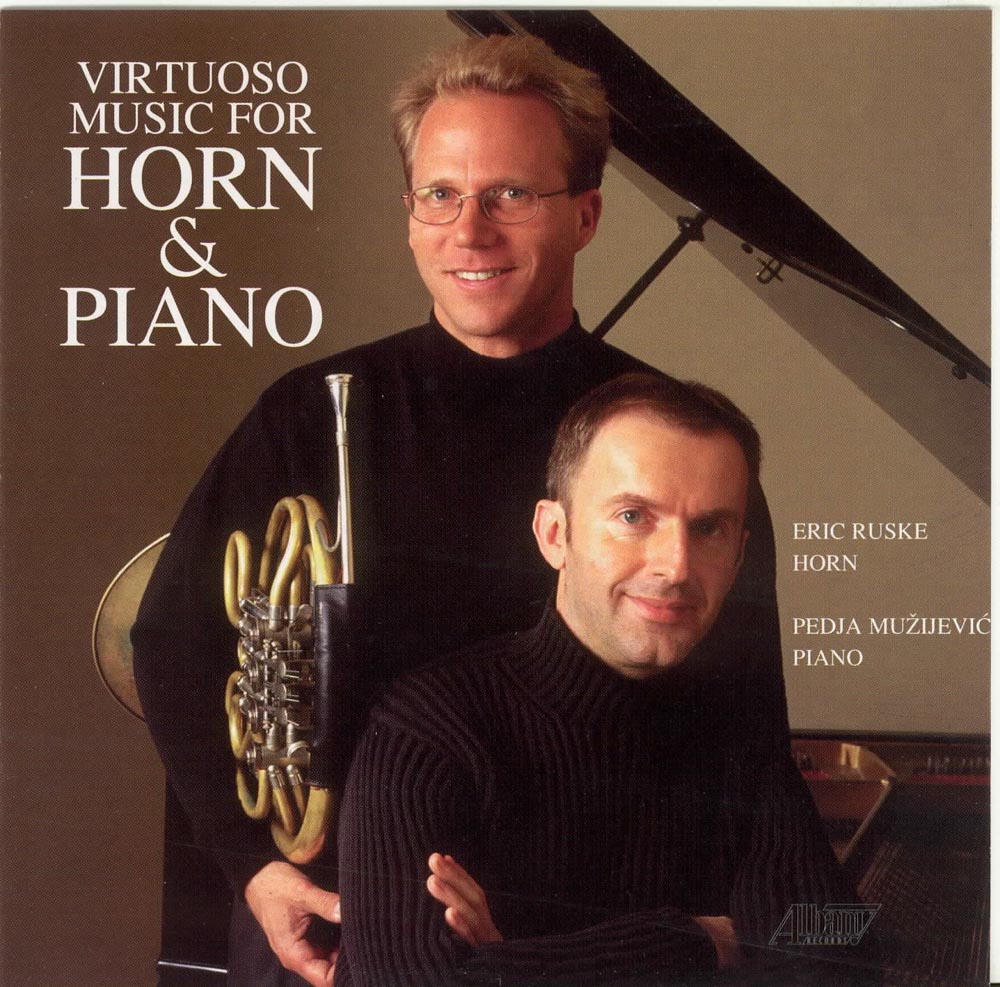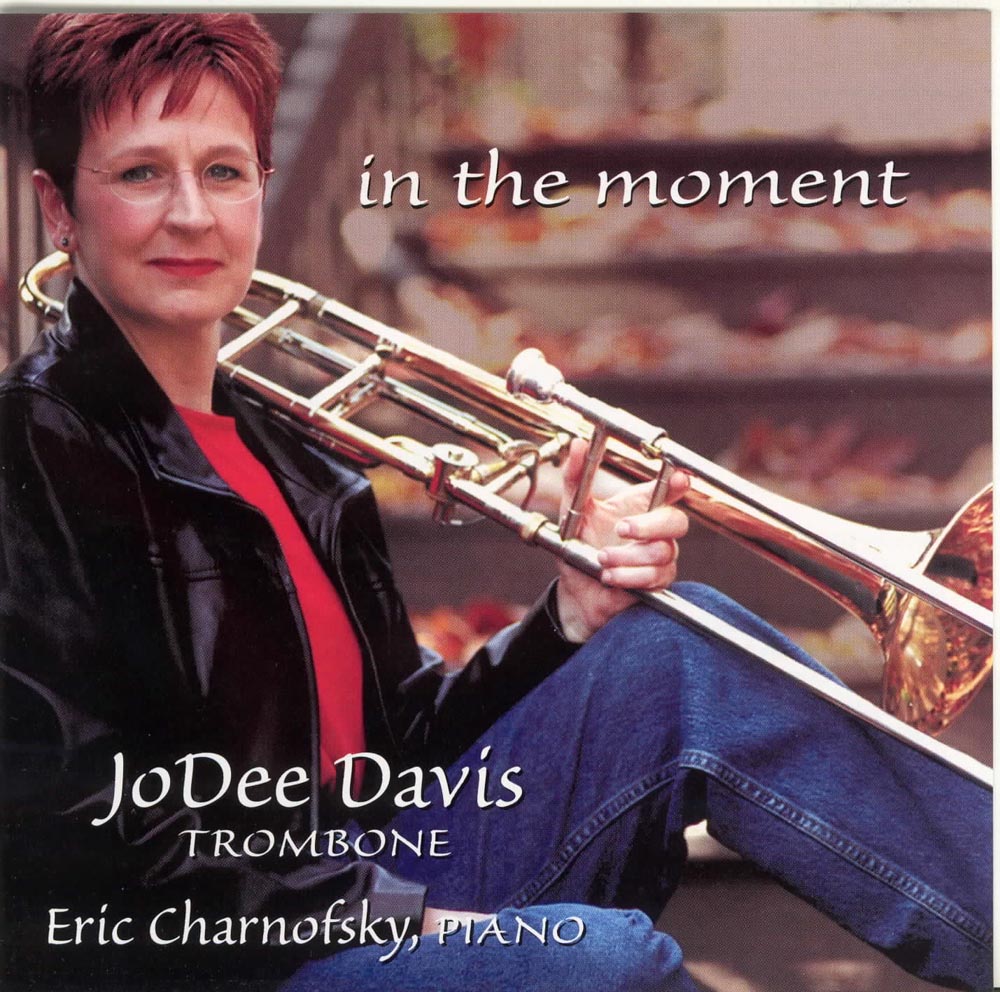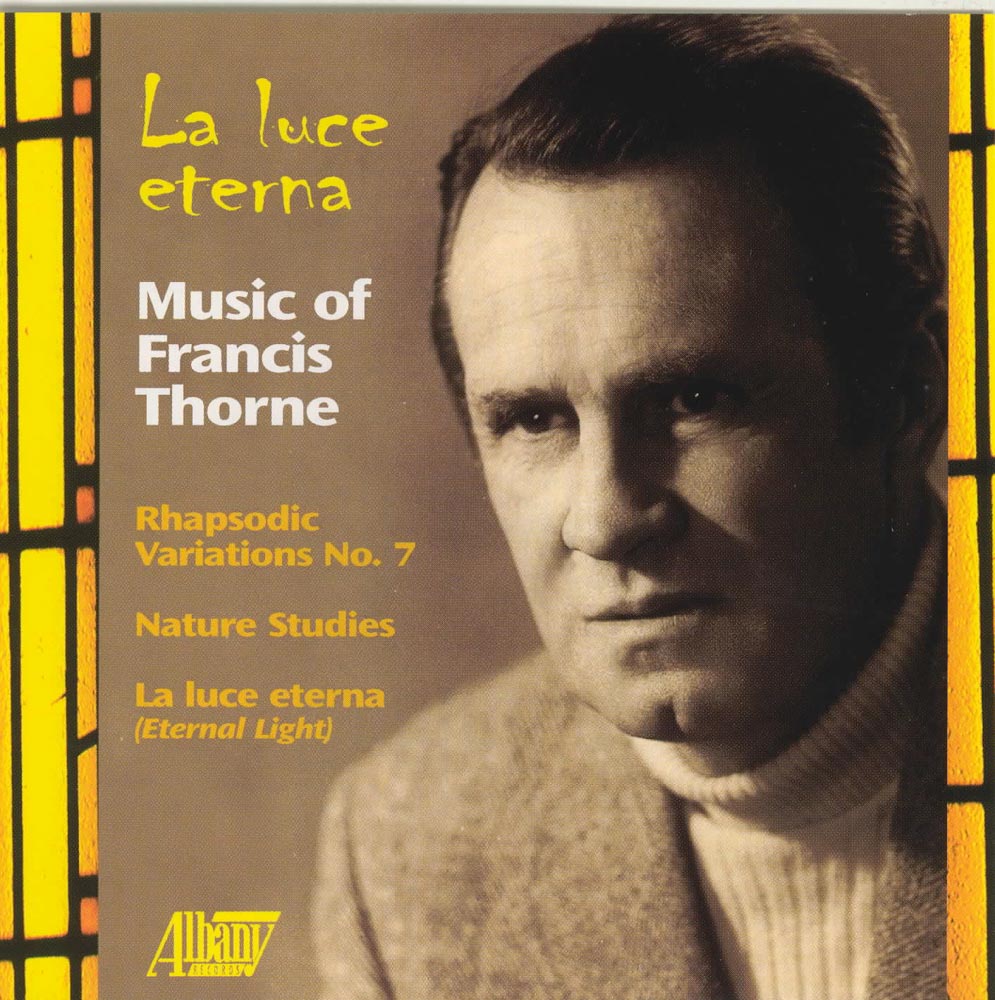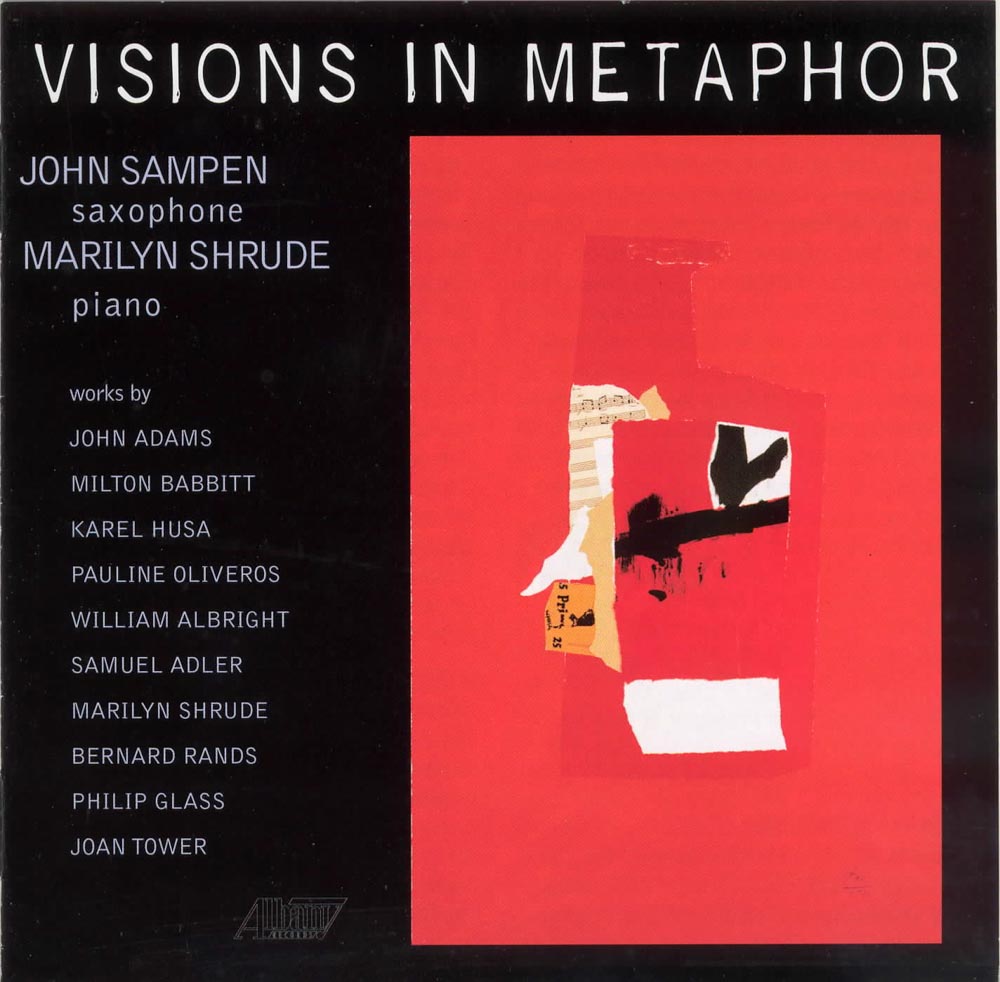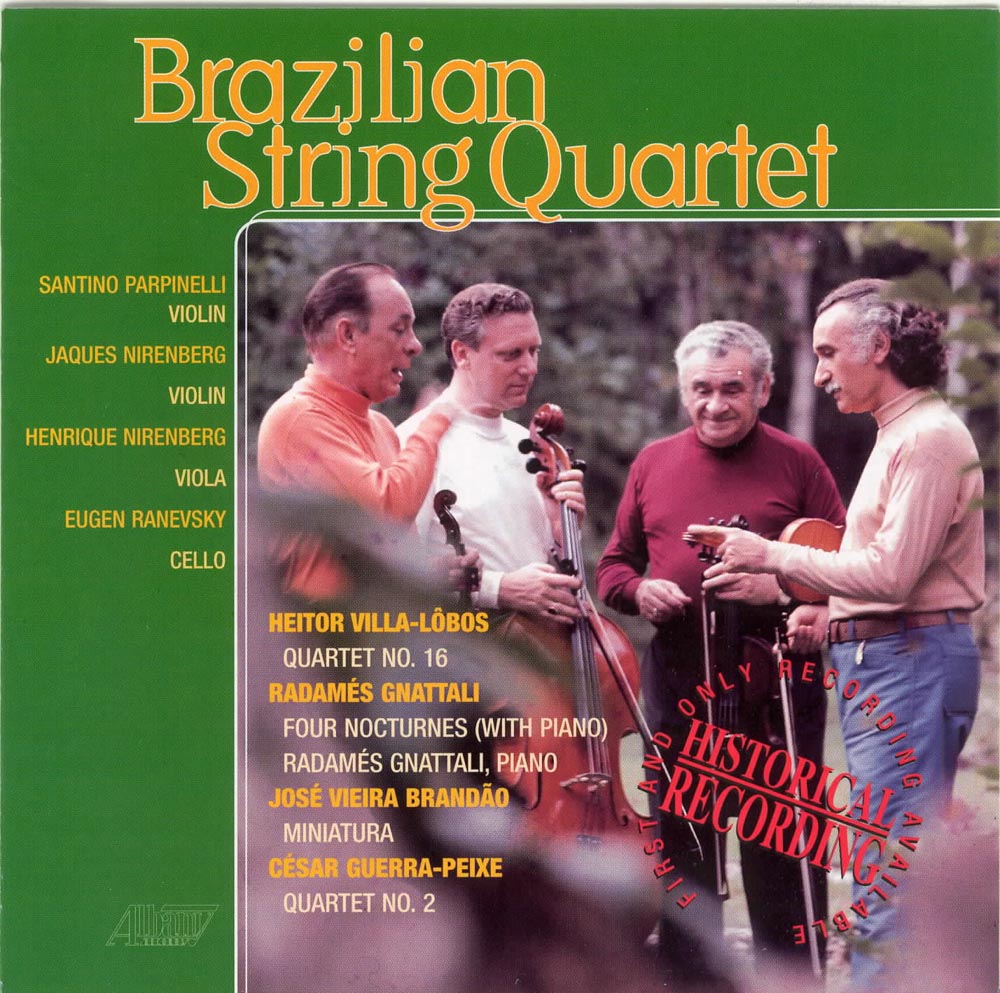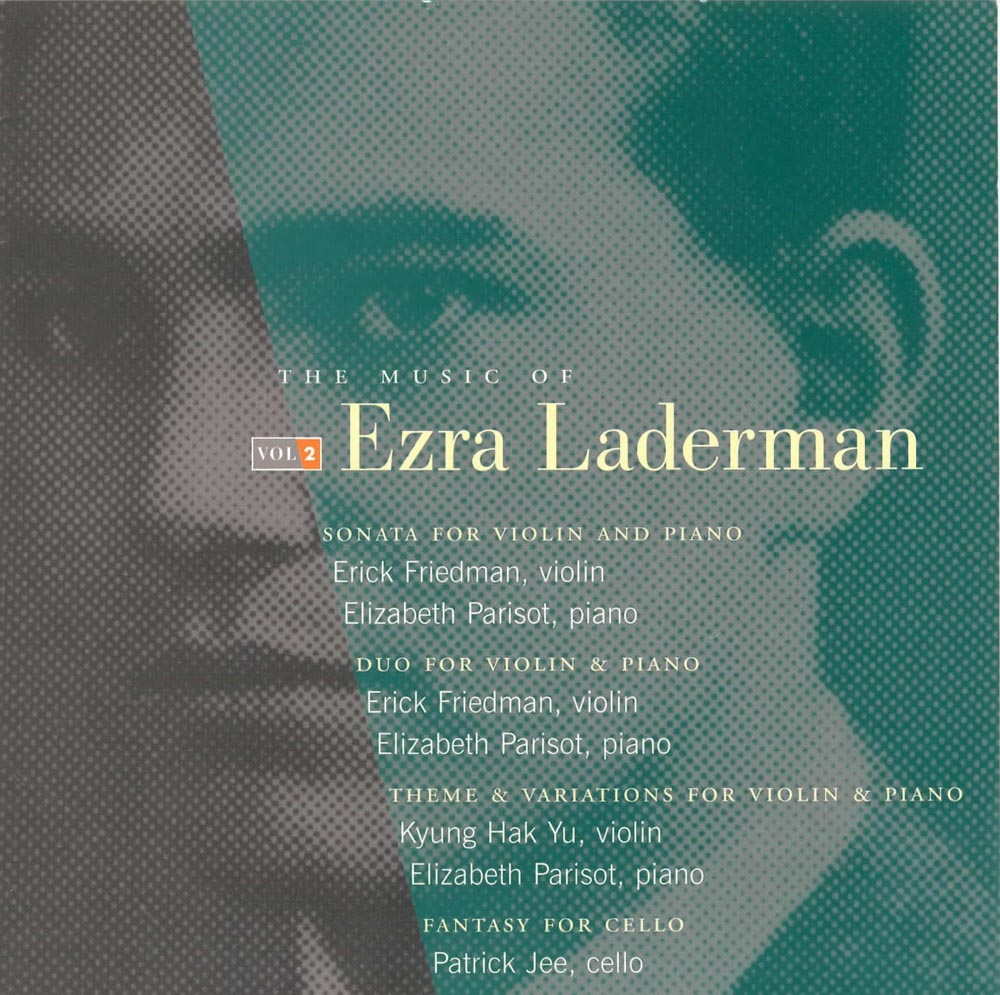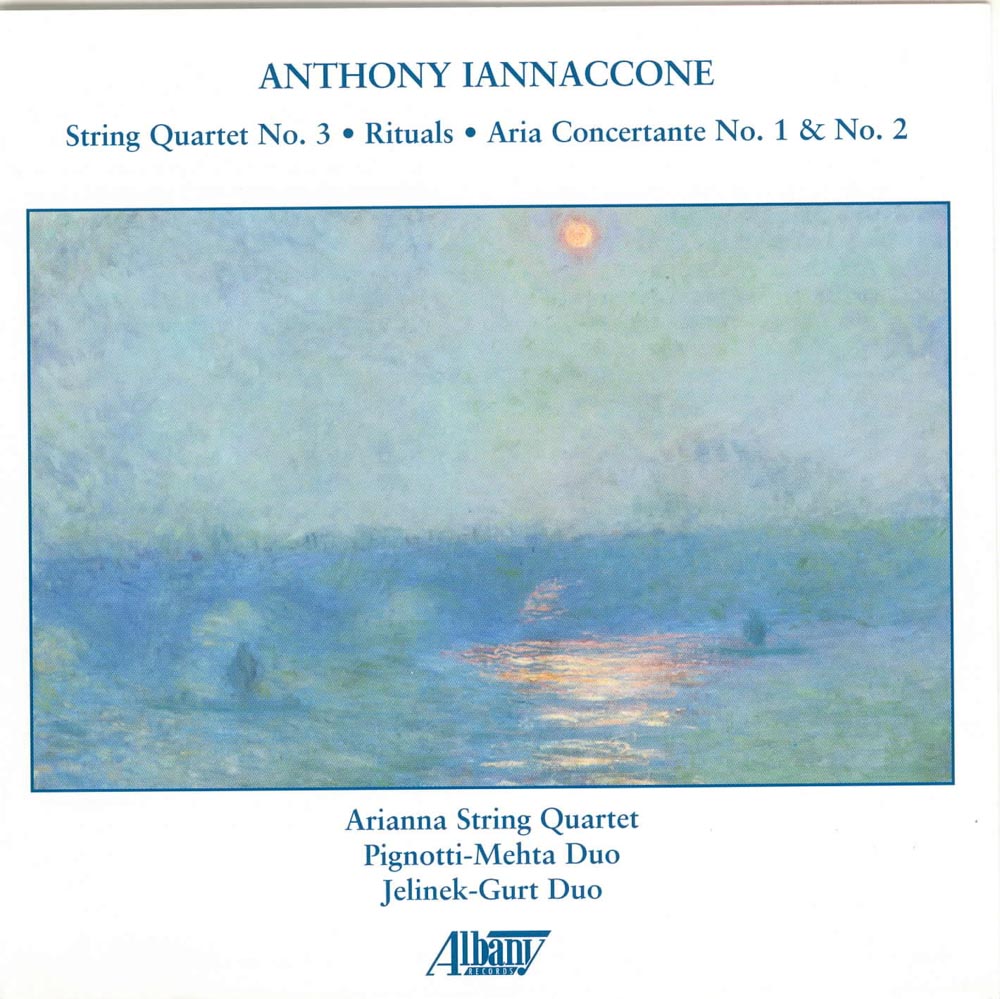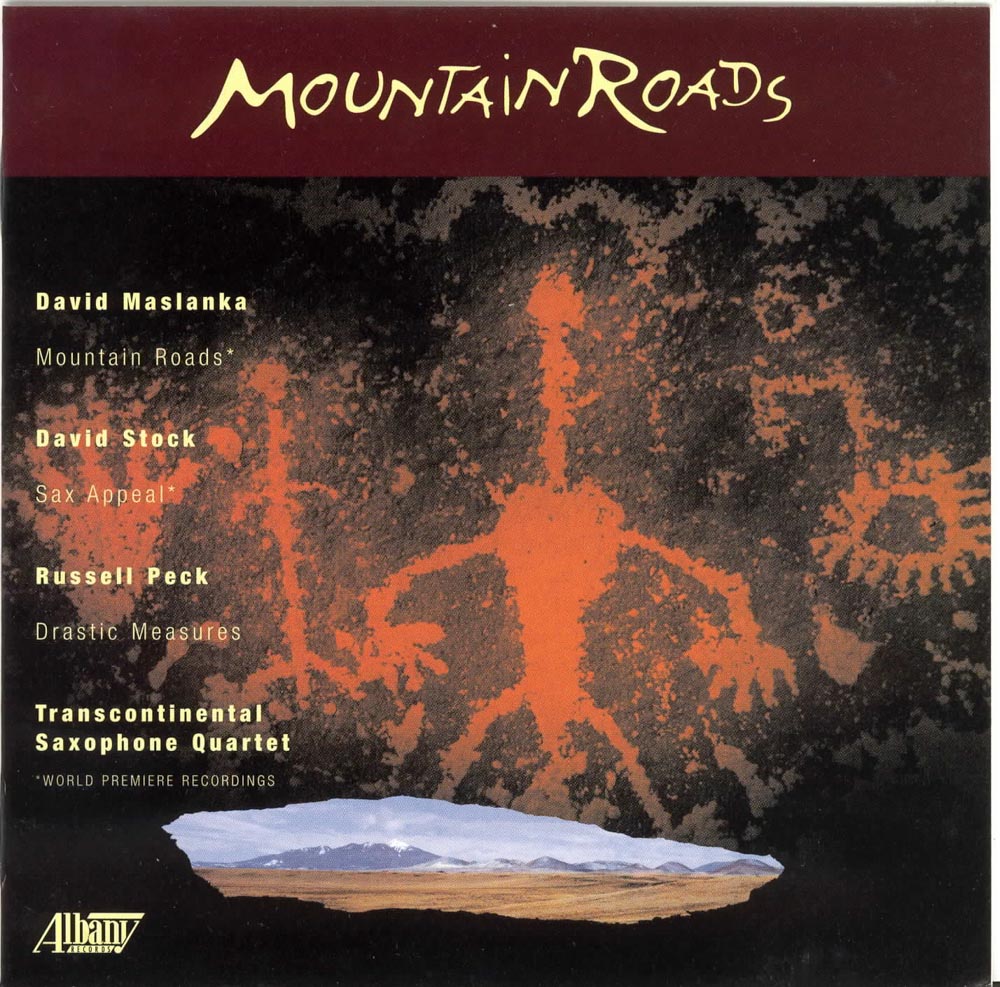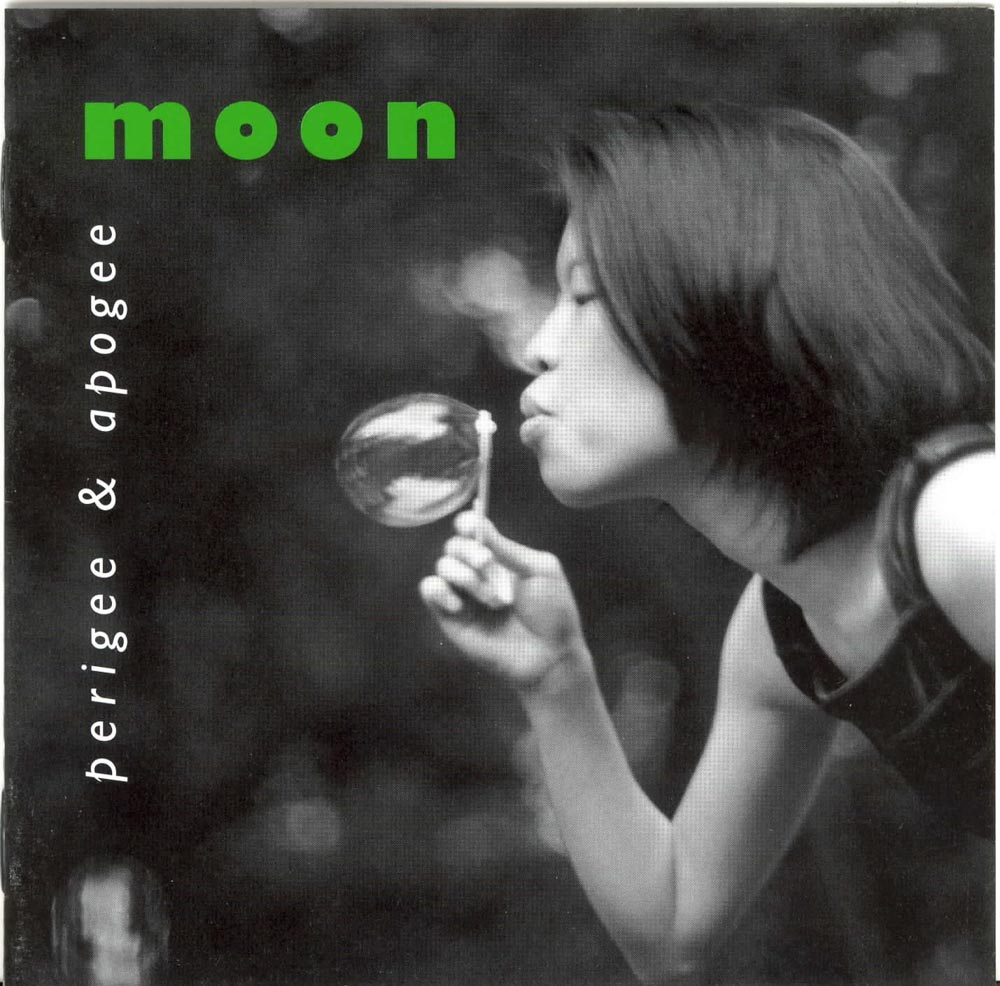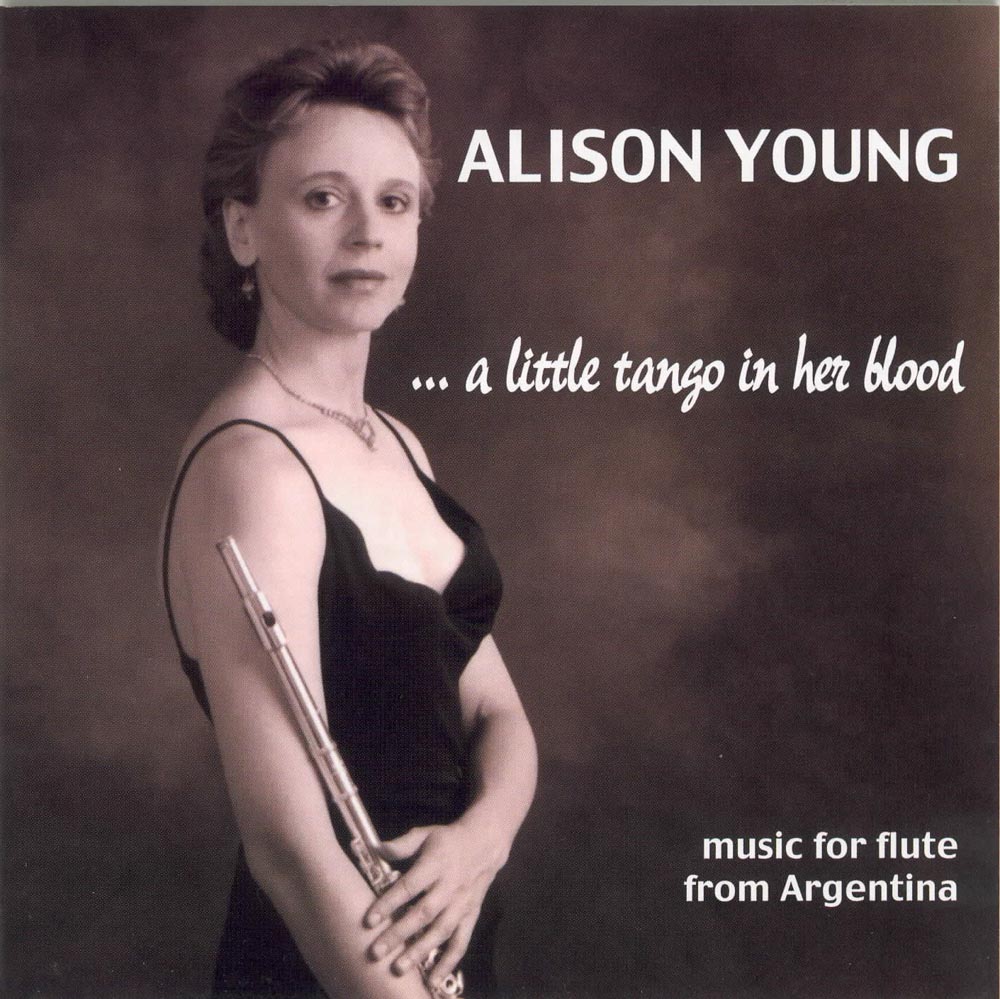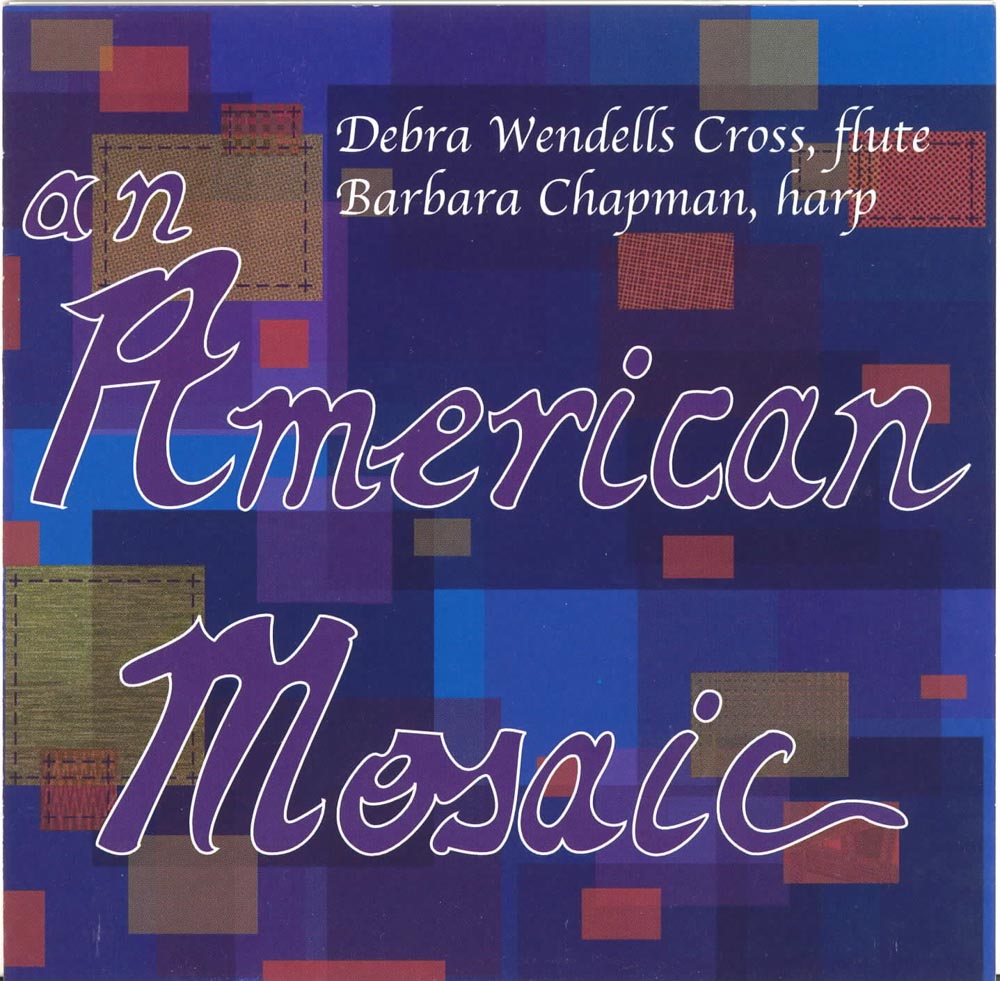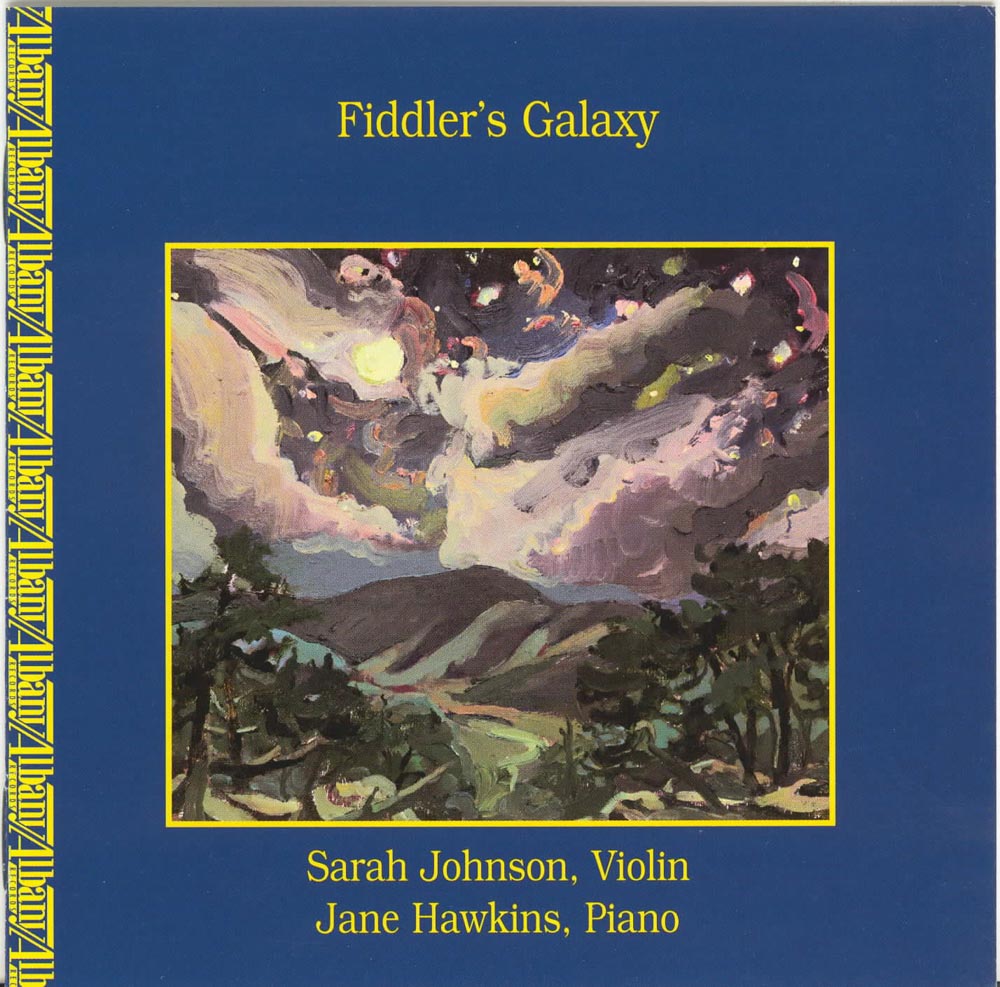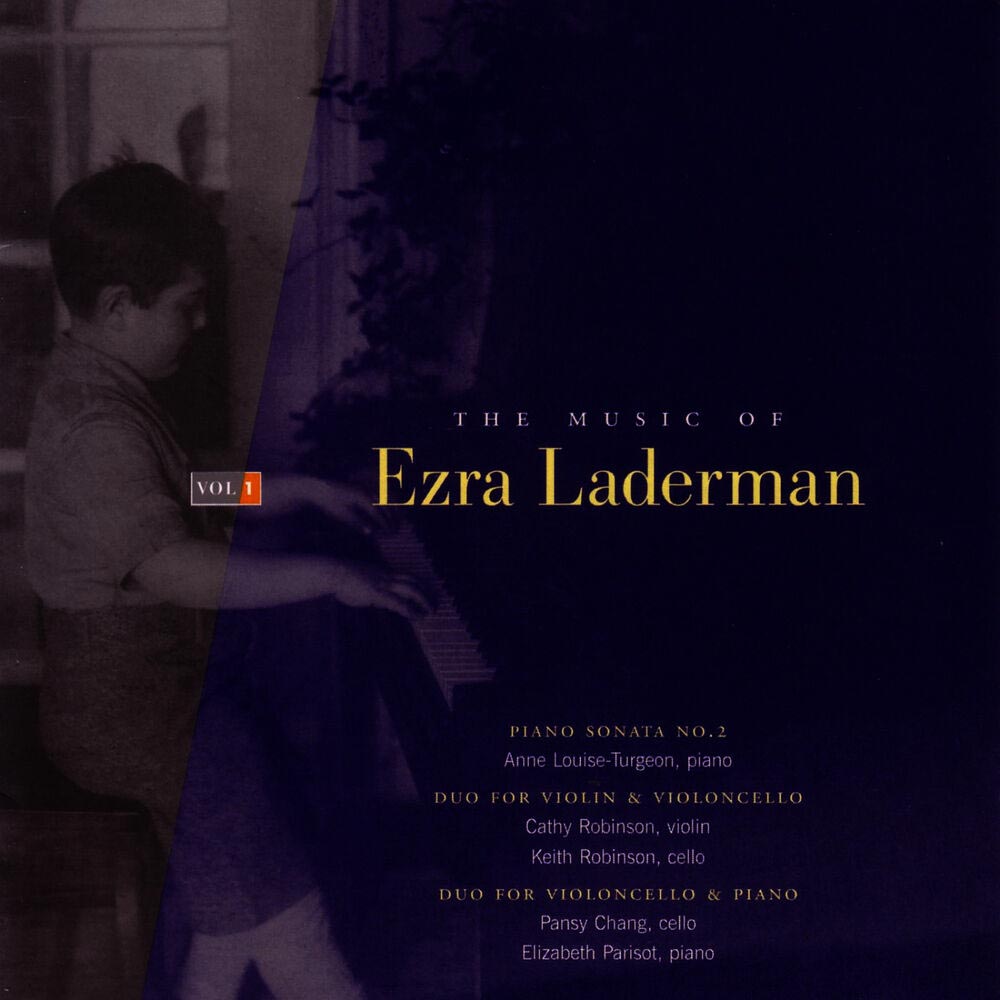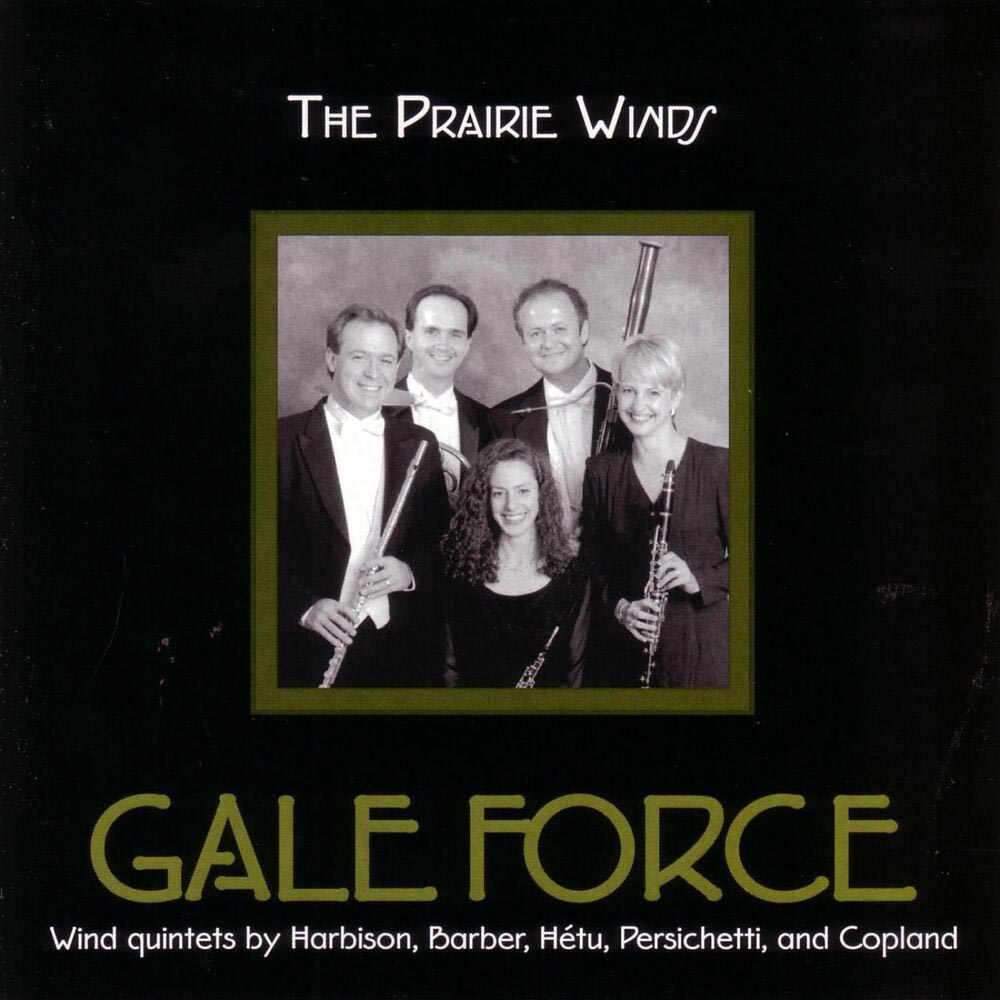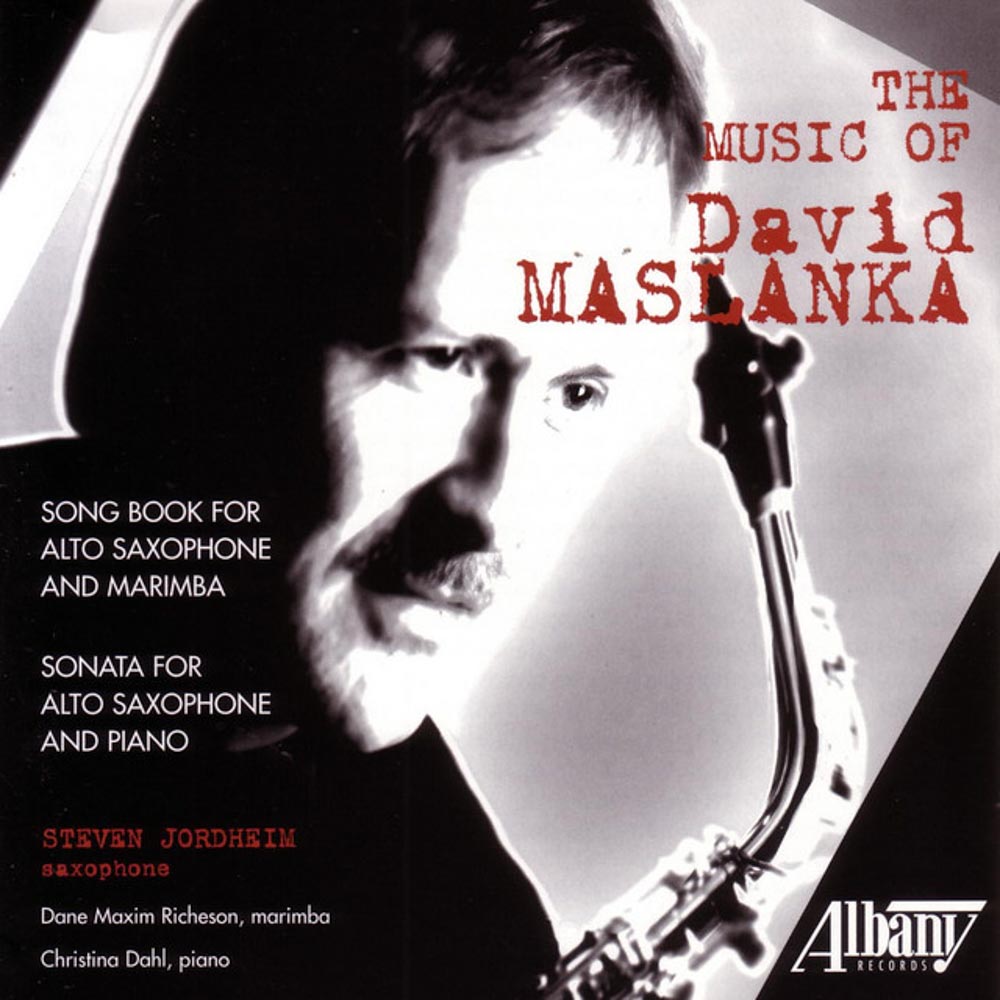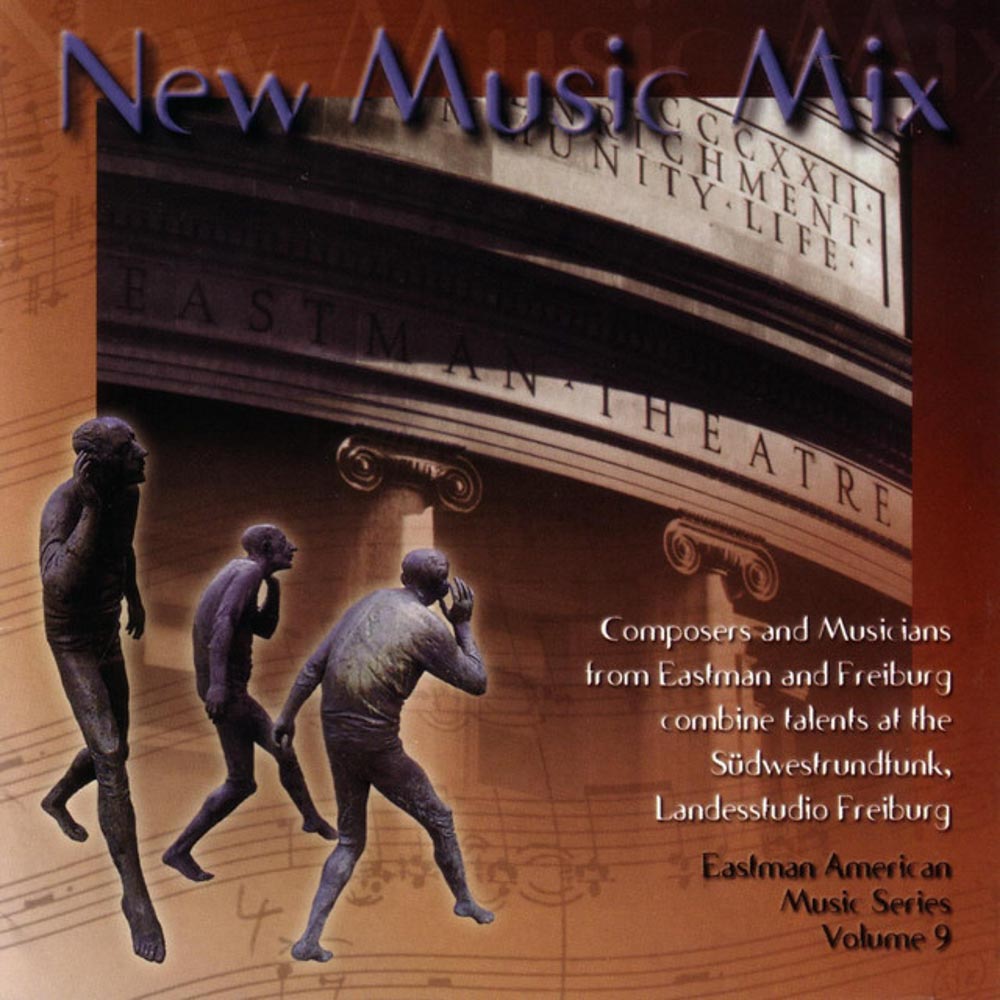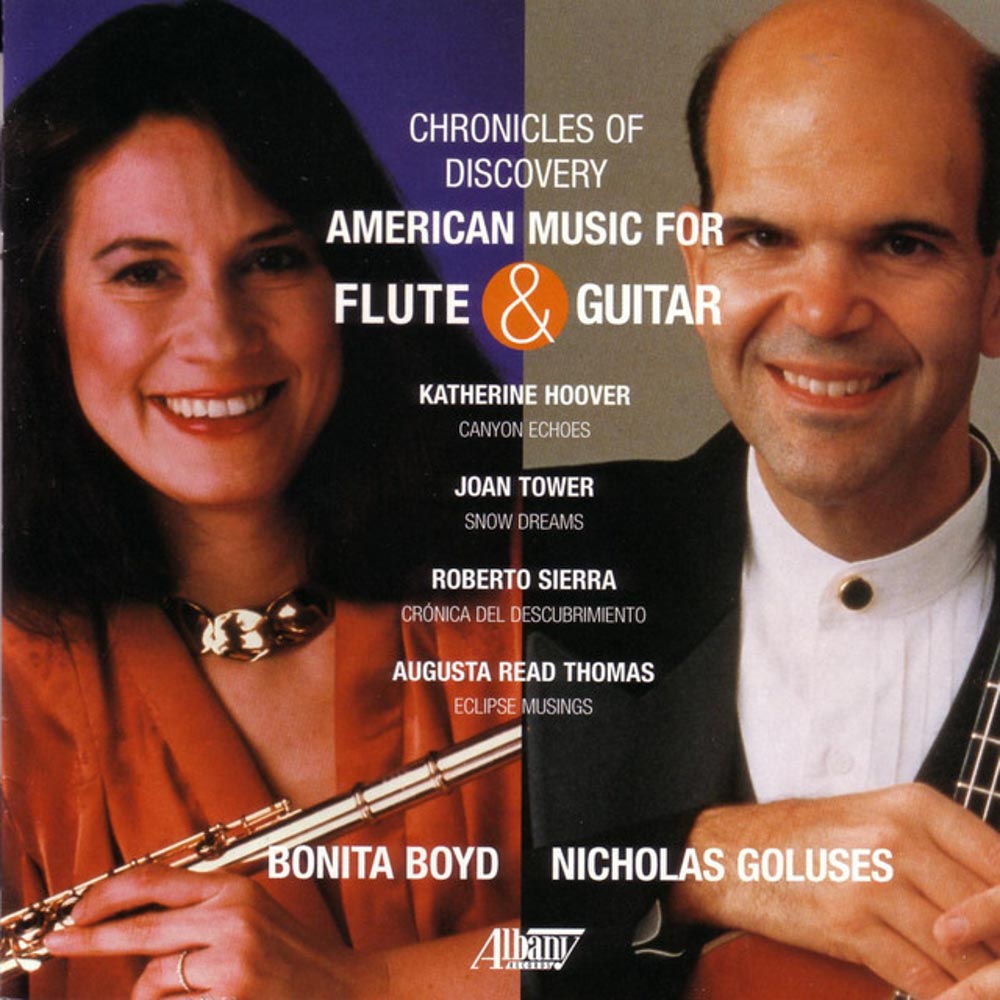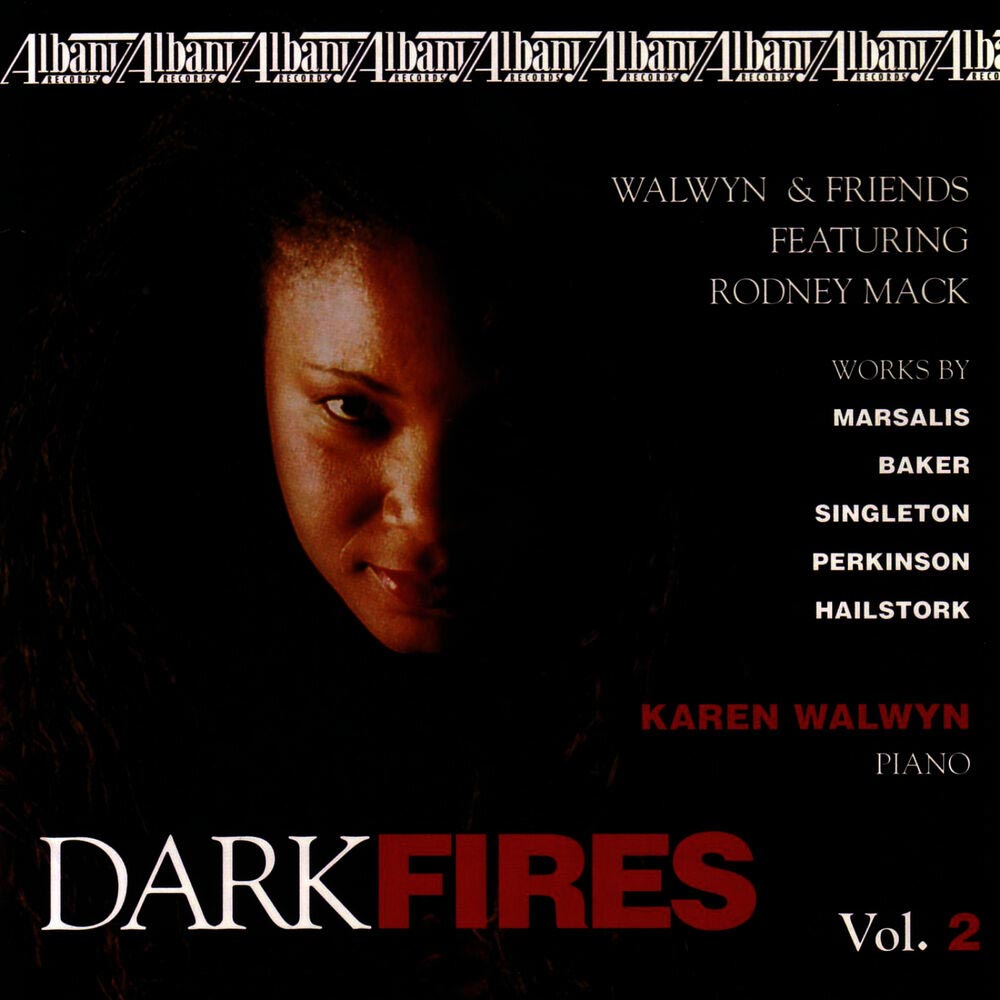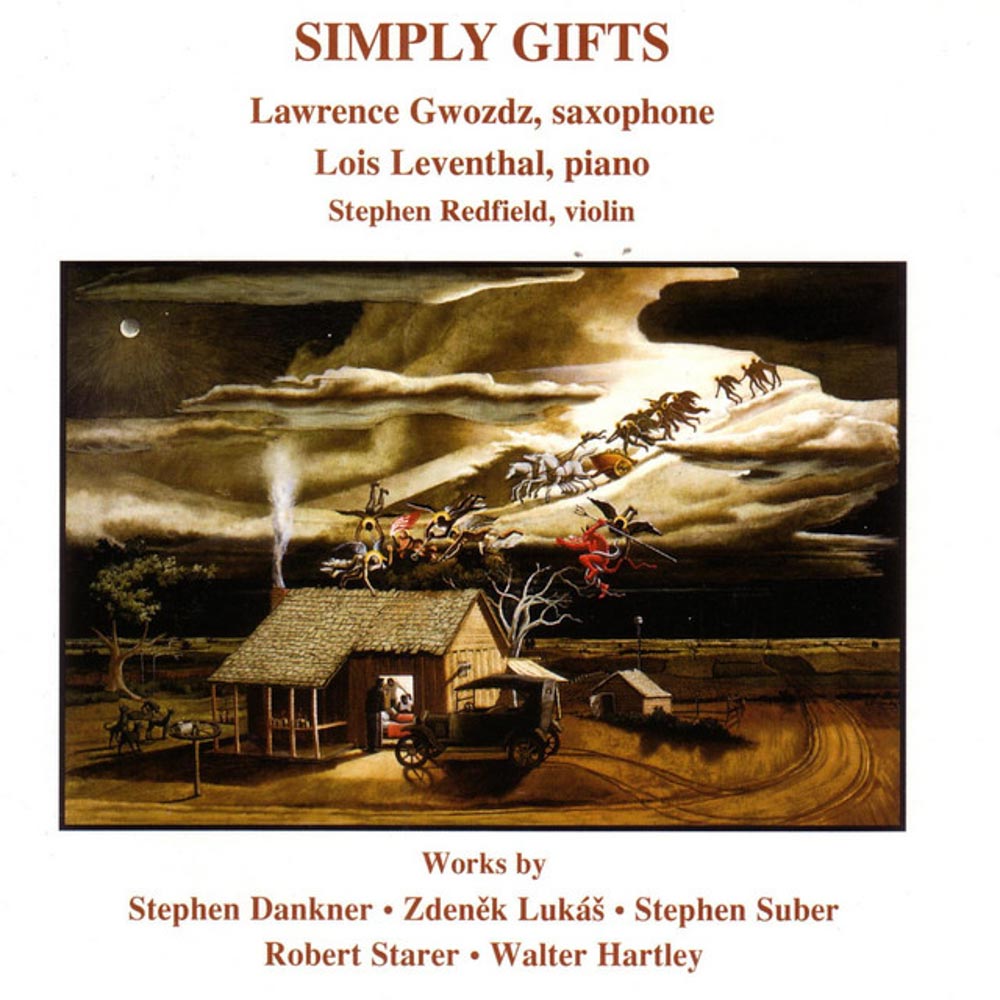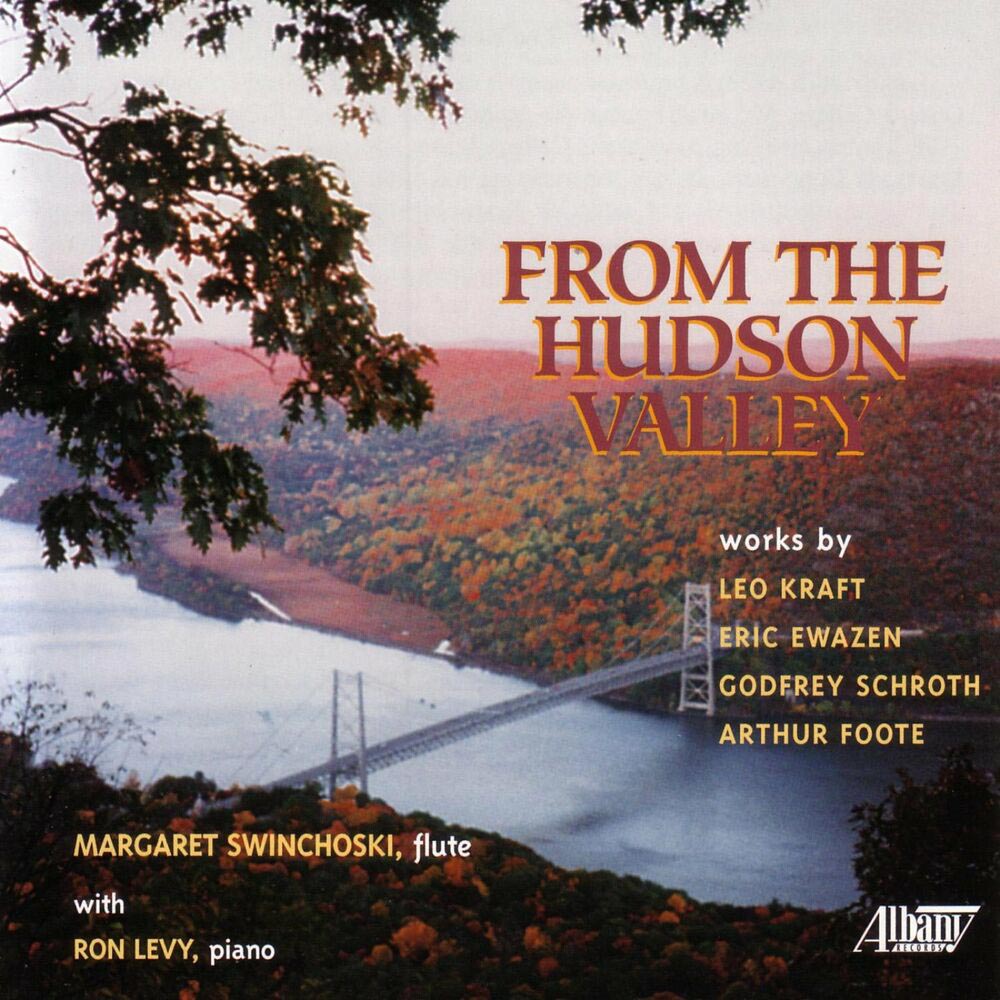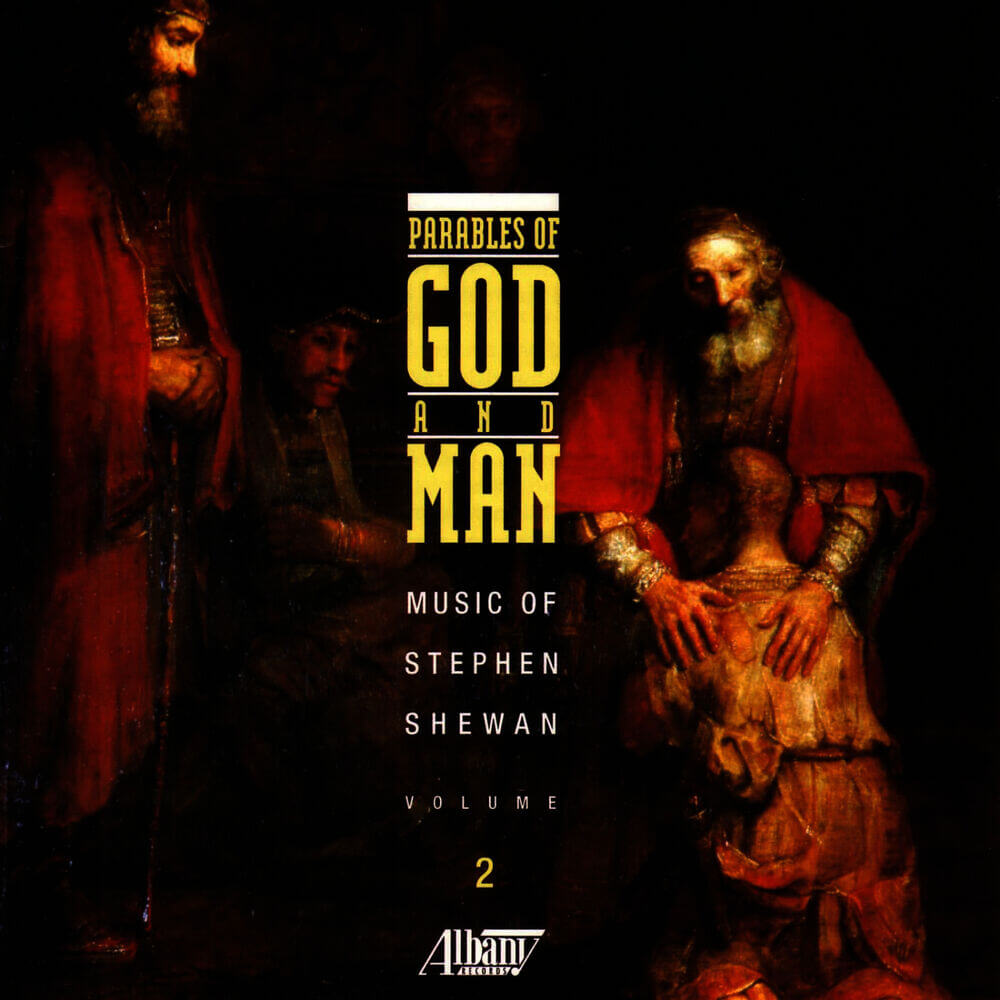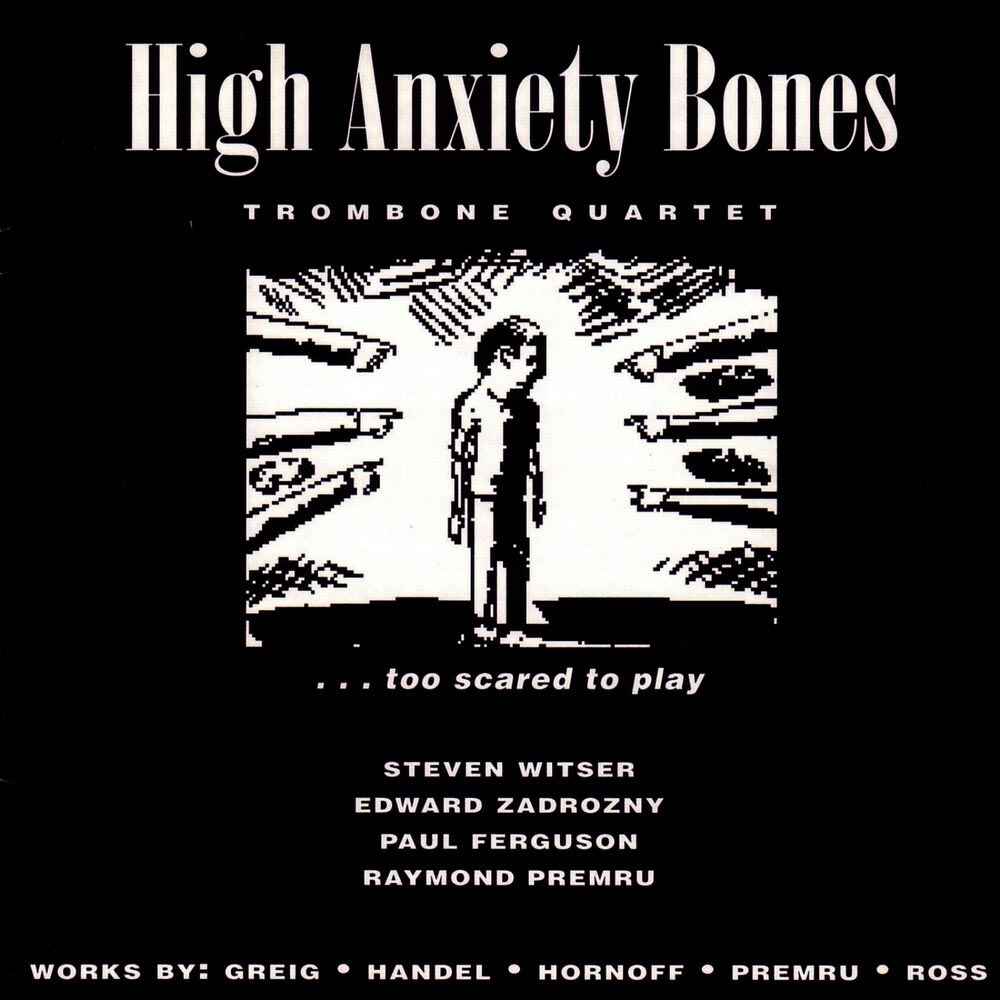Catalog #: TROY0480
Release Date: October 1, 2001ChamberRichard Danielpour writes: "I met Kenneth Fuchs some 20 years ago at the Juilliard School when we were being interviewed for the master's program by an auspicious panel of composers: Milton Babbitt, Elliott Carter, David Diamond, Vincent Persichetti and Roger Sessions. I was impressed by my initial conversation with him and happy that we each had been accepted into the program. I remember his very first string quartet as one of the few works of substance that I heard by a fellow composer during my six years there. Many years later we found ourselves at another school - the Manhattan School of Music. This time Ken was Dean of Students, as I took my place on the composition faculty. This happy confluence of appointments gave me the opportunity again to become acquainted with his music. The fourth quartet displays a formidable sense of craft and imagination with the utmost economy. It is perhaps the most powerful of all his works. The third quartet, with its undertones of Whitman, is at once the darkest and most virtuosic. Unfolding with great assurance, it has a muscular quality that reminds me of the American composers Ken admired so much when he was a student - Schuman, Mennin and Copland. Nonetheless, this third quartet, like the other two represented here, sings with its own voice from the first moment to the last. The second quartet is almost impressionistic, but it is never without the clarity of purpose that is a hallmark of his writing. The composer who is able to evoke joy, tenderness, humor, wildness and a sense of the tragic coherently within the same work does many of us a great service: he reminds those of us who love music why we continue to embrace it as an integral part of our lives. I have been privileged to know Kenneth Fuchs over the years and will be delighted to give this disc an honored place in my collection of much-loved CDs. That we are fortunate to have such extraordinary performances of these works by the American String Quartet is an added gift."
Catalog #: TROY0466
Release Date: October 1, 2001Chamber"Inspired", says the San Francisco Chronicle of flutist Barbara Leibundguth. Former Co-Principal Flutist of the Minnesota Orchestra, Ms. Leibundguth also wins praise from the Minneapolis Star-Tribune: "Bright, gleaming tone...evocative...both stylish and adroit." One of the finest flutists of her generation, Ms. Leibundguth was invited by the Boston Symphony Orchestra, as well as by the major orchestras of Atlanta and Houston, to appear as guest solo flutist. She has also held principal positions with the San Francisco Symphony, the Chicago Opera Theater, and the Omaha Symphony. As a soloist and chamber musician, Ms. Leibundguth has performed at the Marlboro, Grand Teton, and Blossom Music Festivals, and in her hometown of Chicago on the Dame Myra Hess Recital Series. Ms. Leibundguth and award-winning composer/pianist Carl Witt have worked together since 1994, and their musical chemistry creates electric, intelligent performances. In 2002, they received a $25,000 McKnight Performing Artist prize. Visionary Duos was recorded in the world-renowned acoustical space of Orchestra Hall, Minneapolis. This CD presents a collection of passionate and beautifully crafted works, featuring virtuoso counterpoint, radiant melodies, bracing intensity, jazz riffs, and gypsy flair. Here we have an intriguing and expansive view of flute music in the 20th century.
Catalog #: TROY0449
Release Date: October 1, 2001ChamberMore than anything, people probably remember Fisher Tull (he died in 1994) by saying: "He was my friend." Known universally by his nickname, Mickey, he had the warm, honest smile and open-hearted character that bespeak the treasured friendship for which true Texans are known. Born, raised and trained in Texas, his life was dedicated to the cause of music within the state. Tull was a native of Waco and earned his undergraduate, graduate and doctoral degrees in music from the University of North Texas. He was a faculty member at Sam Houston State University for 37 years until his death. He was chairman of the university's Music Department for nearly half that time (1965-1982) and was a great builder of musical institutions at the university. As a composer, Tull received awards, commissions, appearances, performances and recordings, all of which brought recognition to his name from major musical institutions in Texas, across the United States, in London and continental Europe. His compositional activities grew out of his background as trumpet performer and jazz arranger in the early fifties. During his years in college, he wrote over 100 arrangements for dance bands, radio and television productions and recordings. He was the first staff arranger for the renowned University of North Texas Lab Bands. His first serious compositions were for brass ensembles, followed by several works for symphonic band. As he matured, his works embraced a large segment of the instrumental, orchestral and vocal spectrum.
Catalog #: TROY0465
Release Date: September 1, 2001ChamberThe fascinating career of composer, author, critic, and music professor Marion Eugenie Bauer developed from her initiative and steadfast determination to forge a professional life in music. Born in Walla Walla, Washington, the youngest of seven children of Jacques Bauer, a shopkeeper, and Julie Bauer, a teacher of modern languages. After her father died in 1890, the family moved to Portland, Oregon, where, according to Bauer her oldest sister, Emilie, "became literally the father of the family, working with my mother to give the younger brothers and sisters an education and every opportunity for cultural development. To her I owe the fact that I went into the serious study of music." A music critic for the Portland Oregonian as well as a composer and teacher, Emilie was able to build a career as a critic, first in Boston and then in New York. In 1898, Marion joined her sister in New York where she continued her studies with Henry Holden Huss. In 1906 she sailed for Paris where she studied with Nadia Boulanger. She continued to study both in New York and Berlin and by 1912, had established herself as a composer. At 40 she decided she still needed more training so she returned once again to Paris to study with Andre Gedalge who had taught both Ravel and Milhaud. "As a member of the American Music Guild, I had the opportunity to measure my powers and my limitations with those of my colleagues...The result was a period of study in Europe". In 1926, her sister Emilie became ill and died, so Marion moved back to New York. She was hired by New York University as an instructor of music. She remained at NYU until 1951. She also taught part time at Juilliard from 1940.
Catalog #: TROY0454
Release Date: September 1, 2001ChamberCellists don't normally travel in herds. Usually, when playing chamber music, they individually seek out their natural partners. In certain environments, though, they do gather: to comprise the cello section of a symphony orchestra, or to learn as pupils of a master teacher. The development of such groups takes place more naturally in the cello studio of a conservatory teacher. There the teacher may view the ensemble as a vehicle to share musical and technical ideas at once with many of his students. Take the Yale Cellos, for instance. For more than four decades their technique has been refined, their sound shaped by Aldo Parisot, cello professor at the Yale School of Music. The trilogy of works, Aldo, Simoes, and Parisot heard on this recording, comprise the most significant contribution to the cello repertory since Villa-Lobos wrote his two works for cello ensemble. When Laderman composed Aldo, the earliest of his three works for the Yale Cellos, he had heard the group perform with regularity for six years. So he knew already the special capabilities of multiple cellos, with its range of highs and lows approximating the vocal range of a chorus, its center of gravity pitched lower than that of a string orchestra. When Aldo was composed, Laderman did not yet know that he was embarking on a three-work cycle. Only later did Laderman regard the piece as the first in a series, the title for each work drawn from a different one of Parisot's names.
Catalog #: TROY0457
Release Date: August 1, 2001ChamberThe harpsichordist Mark Kroll has long been recognized as one of the central figures in the field of historical performance and early keyboard instruments. During a career spanning over 50 years, he has concertized worldwide as a harpsichordist and fortepianist, winning critical acclaim for his virtuosity and expressive playing. His many recordings include solo repertoire, violin and keyboard music with Baroque violinist Carol Lieberman, and world premiere recordings of Hummel's transcriptions of Mozart symphonies. As an educator he has served as Professor and Chair of the Department of Historical Performance at Boston University since 1977, and he is frequently invited to teach as guest professor at music academies such as Wurzburg. This is his first recording of a disc devoted to just contemporary music and it is most welcome. How many remember the wonderful recording of the beautiful Trimble piece on Columbia in their modern American music series? This new performance is just as stunning and most welcome.
Catalog #: TROY0456
Release Date: August 1, 2001ChamberHorn soloist Eric Ruske has established himself as an artist of international acclaim. Named associate principal horn of the Cleveland Orchestra at the age of 20, his impressive solo career began when he won the 1986 Young Concert Artists International Audition at 22. In 1987, he won the first prize in the American Horn Competition, and in 1988, the highest prize in the Concours International d'Interpretation Musicale in Reims, France. Mr. Ruske gave the 1990 world premiere of Gunther Schuller's Concerto for Horn and Orchestra with the San Antonio Symphony with Mr. Schuller conducting. He has performed as soloist with the Cleveland Orchestra, the Baltimore Symphony, the Indianapolis Symphony, the Milwaukee Symphony and the Boston Pops. Mr. Ruske was educated in his native Croatia and at Juilliard and the Curtis Institute.
Catalog #: TROY0464
Release Date: July 1, 2001ChamberJoDee Davis is professor of trombone at the University of Missouri-Kansas City Conservatory of Music and second trombone of the Santa Fe Opera. She has served on the faculties of Kent State University, where she was a member of the Kent Brass Quintet, and Eastern Washington University. Formerly principal trombone of the Spokane Symphony, Dr. Davis has also performed with a number of other orchestras including the Akron, Canton and Youngstown Symphony Orchestras in Ohio, and the Spoleto Festival Orchestra. She has presented solo recitals and master classes throughout the United States and has performed and given clinics at International Trombone Festivals, the Eastern Trombone Workshop, the Mid-West International Band and Orchestra Clinic, the Arizona Low Brass Symposium, and the Ohio and Texas Music Educators Conferences. She received the Doctor of Music degree in BrassLiterature and Performance from Indiana University, and the Masters degree in Trombone Performance and Bachelor of Music degree in Music Education from the University of Northern Iowa. Ms. Davis is a clinician for the Selmer Company, Inc. The compositions gathered for this recording represent some of the best works from the trombone literature, as well as some outstanding transcriptions. Ms. Davis gives the listener a colorful, engaging feast of music and talent.
Catalog #: TROY0451
Release Date: July 1, 2001ChamberPreeminent in the American musical landscape not only as an artist but also as an administrator, Francis Thorne was born in Bay Shore, New York in 1922. A self-taught jazz pianist, he had hoped for a professional career in music but was deterred by active naval duty in World War II, a young family to support and a dismissive appraisal at Yale by the redoubtable Paul Hindemith. So for several years he worked on Wall Street, like his stockbroker father, and kept music essentially a hobby until a serendipitous recommendation from Duke Ellington led to a number of prestigious jazz engagements. With this rekindling of his musical ambitions, he ultimately traveled to Florence, Italy, studying under the American composer David Diamond, and remained there with his family until 1964. Thorne has served as executive director of the American Composers Alliance and helped organize the American Composers Orchestra and served for many years as its president. His many compositions ranging from symphonies to solo pieces reveal a love of tonality-based chromaticism, uniting the European musical heritage with the jazz tradition native to America.
Catalog #: TROY0446
Release Date: July 1, 2001ChamberNew York-born Sylvia Glickman earned bachelor's and master's degrees in performance from the Juilliard School where she was a piano student and received a Licentiate in Performance from the Royal Academy of Music. Her performance and composition awards include the Loeb Memorial Prize from Juilliard, a Fulbright Scholarship, the Hecht Prize in Composition from the Royal Academy and a Solo Recitalist Grant from the National Endowment for the Arts. Her music, for keyboard, voice, chamber groups, orchestra and chorus, has been performed throughout the United States, in Europe and in Israel. Carved in Courage commemorates the fortitude of the Danish people who helped to save Denmark's Jews from the Nazis. Am I a Murderer? is a cantata for voice and chamber ensemble. The singer speaks and sings the text written by Frank Fox, translator of the diary of Calel Perechodnik, a Polish Jewish policeman. Perechodnik was promised by the Nazis that his family would be saved if he helped to round up Jews for deportation. He assisted the Germans, but lost his family. His diary was found after he committed suicide. The Walls are Quiet Now reflects emotions evoked by the sight of a memorial wall outside the Grnnwald S-bahn station in Berlin, Germany. This wall honors the memory of the Jews of the city, transported from that station to concentration camps.
Catalog #: TROY0442
Release Date: July 1, 2001ChamberThis recording seeks to celebrate the eclectic American music of the recent past. In 1994 John Sampen and Marilyn Shrude initiated a commissioning project designed to represent this diversity. Seven major American composers were invited to contribute "postcard pieces" highlighting their unique musical styles. The resulting collection, which comprises an interchangeable suite for saxophone and piano, demonstrates serialism, aleatory, improvisation, and a variety of other musical languages, styles and genres. In addition to the postcard pieces, this compact disc includes five works complimenting the musical and cultural melange of late 20th century America. Internationally-recognized saxophonist John Sampen has premiered more than 60 works, including commissions by Rands, Subotnick, Cage, Adler and Babbitt. A clinician for the Selmer Company, Sampen has presented master classes at important universities and conservatories in Asia, Europe and North America. Dr. Sampen is presently Distinguished Artist Professor at Bowling Green State University and president of the North American Saxophone Alliance.
Catalog #: TROY0420
Release Date: June 1, 2001ChamberThe Brazilian String Quartet, affiliated with the Federal University of Rio de Janeiro, has a 48 year history as one of the world's most distinguished ensembles. This CD is devoted to four Brazilian composers of the 20th century. Villa-Lobos needs no introduction. Radames Gnattali settled in Rio di Janeiro permanently in 1931. He became conductor of the city's Radio National Orchestra and became well known because of his arrangements and orchestrations of popular songs. His own serious music was inspired by popular music and was very nationalistic. It contained elements of post romanticism. Jose Vieira Brandao studied piano with the great French pianist Marguerite Long and in 1932 became the assistant to Villa-Lobos as he attempted to reform the music education system of Brazil. For many years he was the President of the Brazil Music Conservatory. Cesar Guerra-Peixe graduated from the Conservatory in 1943 with degrees in piano and composition. His early works were written in the 12-tone idiom which he soon abandoned, adopting a more nationalistic approach which he felt better defined his own musical goals. He did a great deal of research on the subject of Brazilian folk music and taught composition privately for over 30 years.
Catalog #: TROY0434
Release Date: May 1, 2001Chamber"When I was accepted as a student at the High School of Music & Art, created in 1934 by Fiorello LaGuardia, mayor of New York, my family decided to move a block away from the school in Manhattan. The move to 492 West 136th Street was significant because it brought us across the street from Lewisohn Stadium, the summer home of what was essentially the New York Philharmonic. It also brought me to within a fifteen minute walk of the old Juilliard School of Music. What precipitated the move was that living in Brooklyn we were one and one half hours by subway from the High School. I came home from school the first day in September 1936 lugging a full size double bass. The next morning my resolute mother paraded me to confront Alexander Richter, head of the music section at the School. Before my mother uttered a word, he calmly took away the double bass and handed me a flute." What an amusing incident from the life of the wonderful American composer Ezra Laderman. Here is another one. "When I reflect over the nineteen thirties and how I was shaped in those early years, the record library at Juilliard looms awfully large. For the first time in my young life I was able to listen to recordings while reading scores of the main body of music. Whether it was Sibelius's Second or the Grosse Fugue, it was absorbed with enormous excitement. I would spend countless hours listening, my ears covered by huge ear phones, my eyes buried in the print. Over and over again, score in hand, I would listen while the librarians, wonderful in helping and guiding me through this newly discovered wonderland looked on with amusement. I was hooked." A fine composer was born and you can now listen to his chamber music on this new CD. What goes around certainly does come around. (Hear also volume 1, TROY399.)
Catalog #: TROY0414
Release Date: March 1, 2001ChamberAnthony Iannaccone was born in New York City and studied at the Manhattan School of Music and the Eastman School. His principal teachers were Vittorio Giannini, Aaron Copland, and David Diamond. During the 1960's, he supported himself as a part-time teacher at the Manhattan School and as an orchestral violinist. His catalogue of approximately fifty published works includes three symphonies, as well as smaller works for orchestra, several large works for chorus and orchestra, numerous chamber pieces, a variety of works for wind ensemble, and several extended a cappella choral compositions. Since 1971, he has taught at Eastern Michigan University, where he conducts the Collegium Musicum in 18th century music for chorus and chamber orchestra. Another disc of his music is available on Albany Records (TROY280), which features his music for wind ensemble.
Catalog #: TROY0412
Release Date: February 1, 2001ChamberAbout Mountain Roads, the composer David Maslanka writes: "The music of Mountain Roads is a very personal statement. I feel very deeply about every bit of it. The musical plan of it follows the model of a Baroque cantata, and style and content reflect my years of study of the Bach chorales, and of Bach in general. Obviously there are no words in my "cantata" but the music revolves entirely around two chorale melodies. The title Mountain Roads comes from a dream I had while writing the piece". About his Sax Appeal David Stock writes: "The work was commissioned by the Amherst Saxophone Quartet by Summerfest, a music festival in Pittsburgh, for its 10th anniversary season. The premiere took place in July, 1990. The work is in four movements: Set Up, Blues, Sarabande, and jump. Jazz is clearly the primary influence, as befitting the genre that brought this wonderful instrument into its own". Russell Peck's Drastic Measures is the only piece on this disc that has been recorded before. About it, the composer writes: "During my brief university teaching career I came into contact with excellent saxophonists at Northern Illinois University who had a quartet and wanted a piece from me. That's how I came to write Drastic Measures in 1976. A year later I went to the School of the Arts in North Carolina where James Houlik had a great saxophone studio and a wonderful student quartet that became the New Century Saxophone Quartet. I touched up the piece for them and that became its final form."
Catalog #: TROY0426
Release Date: January 1, 2001ChamberKorean-American composer/pianist/educator Beata Moon embarked on her musical career at the age of eight performing with the Indianapolis Symphony Orchestra. Her flight into composing began after she graduated from Juilliard in 1990, where she studied piano under Adele Marcus. Subsequently, the role of the composer as performer and educator became an important one in Moon's life. She performs her own works, in addition to those of both traditional and contemporary composers, and is actively involved in aesthetic education as a teaching artist at Lincoln Center Institute. Curiously, like her name, Beata Moon's music does not betray its origins. The music sounds American, at least no other country's music would contain her mixture of elements. She is self-taught as a composer. Her music is an irrepressible outpouring and sounds like it.
Catalog #: TROY0422
Release Date: January 1, 2001ChamberEvan Chambers studied composition at the University of Michigan, where he joined the faculty in 1993. He is also a traditional Irish fiddler, and appears frequently as a performer of his own works. The composer writes: "I grew up on the edge of the suburbs. Living at a balance point between urban and rural, I did not fully belong in either world but always moved in both: symphony concerts, shopping malls, and trips to museums on one hand, and fields, ponds and endless walks in the woods on the other. I also occupied the dividing line between folk and classical music, surrounded as I was by my father's equally enthusiastic renditions of Tchaikovsky on the violin and John Henry on the five-string guitar. I came to love the beauty of in-between spaces." It can safely be said that Evan Chambers' music occupies most imaginatively all these in-between spaces.
Catalog #: TROY0423
Release Date: November 1, 2000ChamberHailed by the Atlanta Constitution and Journal as a "recitalist of great poise and technical security, dazzling precision and virtuosic flair," Alison Young has a diverse music career as an orchestral principal, soloist and teacher. A graduate of the Interlochen Arts Academy, she holds degrees in music from the University of Southern California and the Cleveland Institute of Music. In 1998, composer David Diamond applauded Ms. Young's interpretation of his Flute Concerto as "some of the finest flute playing I have heard." She recorded the premiere of this work which can be found on Albany TROY308. For much of her life Alison Young has felt a desire to travel to Argentina and immerse herself in that culture. In 1998, she was invited to serve a six-week performing and teaching residency in Argentina in the regions of Patagonia, La Plata, Buenos Aires, and Corrientes. She continued to share her work and study of the music with a seven-week tour of the United States in 1999 presenting recitals and master classes on Argentinean flute music. This recording represents the culmination of that particular project with a cross-section of music for flute from Argentina.
Catalog #: TROY0419
Release Date: November 1, 2000ChamberDebra Wendells Cross holds the position of Principal Flute in the Virginia Symphony. She also serves on the faculties of the College of William and Mary and Old Dominion University, and during the summer is Principal Flutist of the Eastern Music Festival in Greensboro, North Carolina. The Seattle native graduated with honors from the New England Conservatory. She also studied in Paris with Michel Debost. Barbara Chapman holds the position of Principal Harp for the Virginia Symphony and the Virginia Opera. She has also performed at the Glimmerglass Opera Festival in New York and continues to perform annually at the Virginia Waterfront International Arts Festival.
Catalog #: TROY0417
Release Date: November 1, 2000ChamberBorn in Barcelona, Spain, Leonardo Balada graduated from the "Conservatorio del Liceu" of that city and the Juilliard School in 1960. He studied with Vincent Persichetti, Aaron Copland and Igor Markevitch. Since 1970 he has been teaching at Carnegie Mellon University in Pittsburgh, where he is University Professor of Composition. Another volume of his music appears on Albany TROY343.
Catalog #: TROY0407
Release Date: October 1, 2000ChamberKenneth Frazelle was born in Jacksonville, North Carolina and was a student of Roger Sessions at the Juilliard School. He attended high school at the North Carolina School of the Arts, where he now teaches. He is composer-in-residence with the Los Angeles Chamber Orchestra and the Santa Rosa Symphony. His score for Still-Here brought him international acclaim. The music, written for the folksinger Odetta and ensemble, was written as part of a multimedia dance theatre work. The film version of Still-Here has been viewed by millions on National Public Television and in Canada, France and Japan. Composer and percussionist Aaron Bachelder has composed Chamber, choral, Orchestral and electronic music, as well as songs in popular genres. In addition to his compositional activities, he is a founding member of the improvisational Chamber group, the Spool Ensemble, and the rock band Chapsticks. Robert Ward writes that his piece Appalachian Dances and Ditties "reflects the interest I have had in American folk music in general since the 1950's and in Appalachian music in particular since the 1970's when my wife and I had a second home in Sparta, North Carolina. The richness and vitality of that music is unparalleled by that of any other region of the country." Lukas Foss writes: "I wrote my Three American Pieces at a time when I was in love with my newly adopted country. All the music possesses an open-air quality I think I learned from Aaron, but I have handled it my own way. And there is always the influence of folk music - I looked at it a lot. I was also in love with jazz. The only popular idiom I never got close to was Broadway."
Catalog #: TROY0399
Release Date: October 1, 2000ChamberEzra Laderman writes: "The world I grew up in living in Brooklyn, always close to Ebbets Field and the Children's Museum, consisted of all those things kids did as first generation Americans. To that heady mix there was, as well, music. My parents, Isidor and Leah, were born in Galicia, Poland; came to the United States early in the 20th century, met, married, settled in Brooklyn, and when I arrived June 29, 1924, there was an upright Worthington piano in the apartment and my brother Jack practiced on it daily. When my younger brother Gabriel arrived in 1929, I was already deeply involved in music. When I was three I heard my first children's concert at Carnegie Hall led by the debonair Ernest Schelling. During the height of the depression I used to sit next to the fountain of the Sculpture Court at the Brooklyn Museum while the WPA Orchestra performed. On Saturday nights I would occupy an empty box overlooking the stage at the Brooklyn Academy of Music as some musicians from the pit Orchestra ate sandwiches and drank Chianti as the Salmaggi Opera Company performed Italian repertoire. On Friday afternoons at school we would hear Walter Damrosch take us on musical journeys over the airwaves. When we finally got our Atwater Kent radio, Sunday afternoons belonged to the New York Philharmonic (What a difference between children growing up then and children growing up now! Is it any wonder our classical music is in such trouble today?) One day when I was six, I was brought to the Brooklyn Community Music School, just down the street from BAM and suddenly my musical education in the guise of the Dalcrosse method began. This musical world competed with growing up a city boy, never knowing how desperately poor we were, going (on scholarship) to the Ethical Culture School, where learning Greek history was essential, moving, one step ahead of the landlord, to seven apartments the first decade of my life, and having the extraordinary sense that everything was possible. At four, I was improvising at the piano; at seven, I began to compose music, writing it down. I hardly knew it then, but I had at a very early age made a giant step to becoming a composer."
Catalog #: TROY0401
Release Date: September 1, 2000ChamberNorth America's foremost wind quintet, the Prairie Winds, combines the artistry of five virtuoso musicians from the Chicago Symphony and the faculties of the University of Illinois, Oklahoma State University, and Wheaton Conservatory. The music in this collection represents some of the finest wind quintet music written by North American composers. The richness and diversity of the past century's music is evident through the warmth and lyricism of the quintets of Barber, Persichetti and Copland, the mischievous tongue waggling and technical challenge of John Harbison's writing, and the pathos of Jacques Hetu's Quintette. All the music is powerful, comical, and personal, but most of all, it is the sounds of 20th century North America.
Catalog #: TROY0392
Release Date: September 1, 2000ChamberDavid Maslanka is an American composer whose music we feel strongly about here at Albany. We are pleased to be able to bring you this world premiere recording of two important pieces for saxophone. Mr. Maslanka writes: "The Sonata for Alto Saxophone and Piano was commissioned by the North American Saxophone Alliance. It is a large, passionate and sometimes ferocious piece which mixes old and new elements. Song Book was commissioned by the artists who perform it on this disc. The movements of Song Book are relatively brief. They have a particular thing to say, a particular mood and attitude to express, and then they are done. I think of the pieces as emotional scenes. Whereas the Sonata tends to be overwhelming in its technical and textural demands, the lines and textures of Song Book are for the most part much simpler and quieter."
Catalog #: TROY0380
Release Date: July 1, 2000ChamberIn the spring of 1997, the Staatliche Hochschule fur Musik in Freiburg, Germany, presented the Eastman School with the idea of doing a collaborative exchange concert between the two institutions. Their idea was to mix Eastman and Freiburg faculty and students together in live performances of music written by faculty composers from both schools. It was their hope that this sort of collaborative venture between student and faculty performers and composers would bring the two schools closer together and help strengthen their exchange relationship. That initial idea was realized with concerts in Rochester, New York in October, 1997 and in Freiburg, Germany in February 1998, as well as this CD which was recorded at the Sudwestrundfunk Landesstudio in Freiburg, Germany.
Catalog #: TROY0379
Release Date: April 1, 2000ChamberAbout her piece Canyon Echoes composer, conductor and flutist Katherine Hoover writes: "This piece was inspired by a book called 'The Flute Player,' a simply and beautifully illustrated retelling of an Apache folk tale by Michael Lapaca." Joan Tower is the composer-in-residence with the Orchestra of St. Lukes. "In my piece Snow Dreams there are many different images of snow, its forms and its movements: light snow flakes, pockets of swirls of snow, rounded drifts, long white plains of blankets of snow, light and heavy snowfalls, etc. Many of these images can be found in the piece, if in fact, they need to be found at all. The listener will determine that choice." Roberto Sierra is Professor of Composition at Cornell University. "These six pieces for flute and guitar are a series of chronicles (cronica in Spanish) that I composed on the subject of the meeting between the aboriginal Indian culture of the Caribbean Islands and the Spanish Conquistadors." Augusta Thomas writes: "Music of all kinds constantly amazes, surprises, propels and seduces me into a wonderful and powerful journey. I am happiest when I am listening to music and in the process of composing music. I care deeply that music is not anonymous and generic or easily assimilated and just as easily dismissed. I would say that Eclipse Musings has urgent, seductive, and compelling qualities of sometimes complex, but always logical thought, allied to sensuous and engaging sonic profiles."
Catalog #: TROY0384
Release Date: March 1, 2000ChamberThe special appeal of this CD should be the presence of Ellis Marsalis as a composer, who is the father of Branford, Jason and Wynton. All the works on this CD are world premieres except the Marsalis piece and they represent a variety of styles both quoted and extracted from the various traditional idioms of the composer's heritage. The works offered here are representative of 20th century styles and techniques such as serialism and the tone row; atonality and polytonality; polymetric, multimetric and asymmetrical writings; the integration of Cuban and African rhythms; and the classical structure embracing the vocabulary of Jazz, Blues, Gospel, and Spirituals variously used by such composers as Ellis Marsalis, Adolphus Hailstork, George Walker, Alvin Singleton and others. The display of the breadth of artistic styles in these American compositions lends to the necessary integration of this music into the standard classical repertoire and helps facilitate familiarity with this music independent of color, race or gender.
Catalog #: TROY0378
Release Date: March 1, 2000ChamberBorn to Polish-American parents in Niagara Falls, New York, Lawrence Gwozdz has achieved an international reputation for his success at revealing the inherent qualities of the saxophone intended originally by its inventor, Adolphe Sax. His debut in New York's Weill Recital Hall was described in Musical America as an "extraordinary performance of contemporary music" with "the kind of timbre Adolphe Sax most likely had in mind...always with subtlety and taste." He is Professor of Saxophone at the University of Southern Mississippi, and did indeed study with Sigurd Rascher, among others.
Catalog #: TROY0371
Release Date: February 1, 2000ChamberLeo Kraft is professor emeritus of the Aaron Copland School of Music at Queens College. He studied composition at Queens College and at Princeton University. He also studied in Paris with Nadia Boulanger. His From the Hudson Valley was commissioned by a consortium of 20 flutists from the National Flute Association and received its premiere on August 15, 1998 at their annual convention in Phoenix. Godfrey Schroth was a pupil of the American composer Paul Creston. He first came to attention in 1959 when his Piano Quartet won a major prize and was performed by the Phoenix Quartet. He describes his Spring in Bucks County as "a challenge to both the pianist and the flutist, who must play three instruments." The suite was premiered at the Philadelphia Art Museum in 1974. Its three movements are Equinoctial Dances, River Willows and Fields of May. Eric Ewazen was born in Cleveland, Ohio and studied under Samuel Adler, Milton Babbitt, Warren Benson, Gunther Schuller and Joseph Schwantner at the Eastman School, Tanglewood and the Juilliard School where he has been a member of the faculty since 1980. His Ballade, Pastorale and Dance was premiered at Aspen in July 1993.
Catalog #: TROY0349
Release Date: January 1, 2000ChamberStephen Shewan's music is both melodic and accessible, at times propelled by catchy rhythms flavored with jazz and pop idioms. In Shewan's music we hear a fresh voice at work, demonstrating a talent for ingratiating melody, infectious rhythm and a command of colorful orchestration. Stephen Shewan was born in Warsaw, New York. Currently he teaches music and directs the bands at Williamsville East High School, near Buffalo, New York. He is a graduate of Roberts Wesleyan College and Ithaca College, and is completing his DMA from the Eastman School where he studied composition with Samuel Adler. For a young composer, he has composed in every medium but opera. A previous release on Albany Records (TROY149) contains his Magnificat, Feast of Carols and String Quartet No. 1. His most recent work is Hymn for Spring (1999) for Chorus and Orchestra.
Catalog #: TROY0338
Release Date: October 1, 1999ChamberTyrone Greive writes in his extensive notes for this disc: "Like much other Polish classical music, the music on this recording reflects the basically western orientation of Polish culture in how it frequently sounds similar to one of the more familiar musical styles from Western Europe. Yet, there are moments when the melody, harmony or other musical elements take unexpected and unfamiliar-sounding turns, thus reflecting that Poland is a country where Eastern and Western cultures have traditionally intermingled. Often, works of individual Polish composers reflect the influences of other specific countries, schools and individuals, thus in some way mirroring Poland's cultural exchanges with the rest of Europe at a particular time." Much of this material appears on disc for the first time.
Catalog #: TROY0346
Release Date: September 1, 1999ChamberHere is a delightful sound - four trombones; mellow, rich. Admittedly, this will have appeal mainly to your customer who enjoys brass music. Hopefully, they will give this disc a try. Steven Witser has served as Assistant Principal Trombone of The Cleveland Orchestra since 1989 and is a member of the Center City Brass Quintet. Edward A. Zadrozny is an Associate Professor of Trombone at the University of Akron and Principal Trombone of the Akron Symphony Orchestra. Paul Ferguson has been director of Jazz Studies at Case Western Reserve University in Cleveland since 1988. Raymond Premru was Professor of Trombone at the Oberlin Conservatory from 1988 until his death in 1998.
Catalog

©2024 Albany Records. All rights reserved. | Privacy Policy | Website by PARMA Creative.
